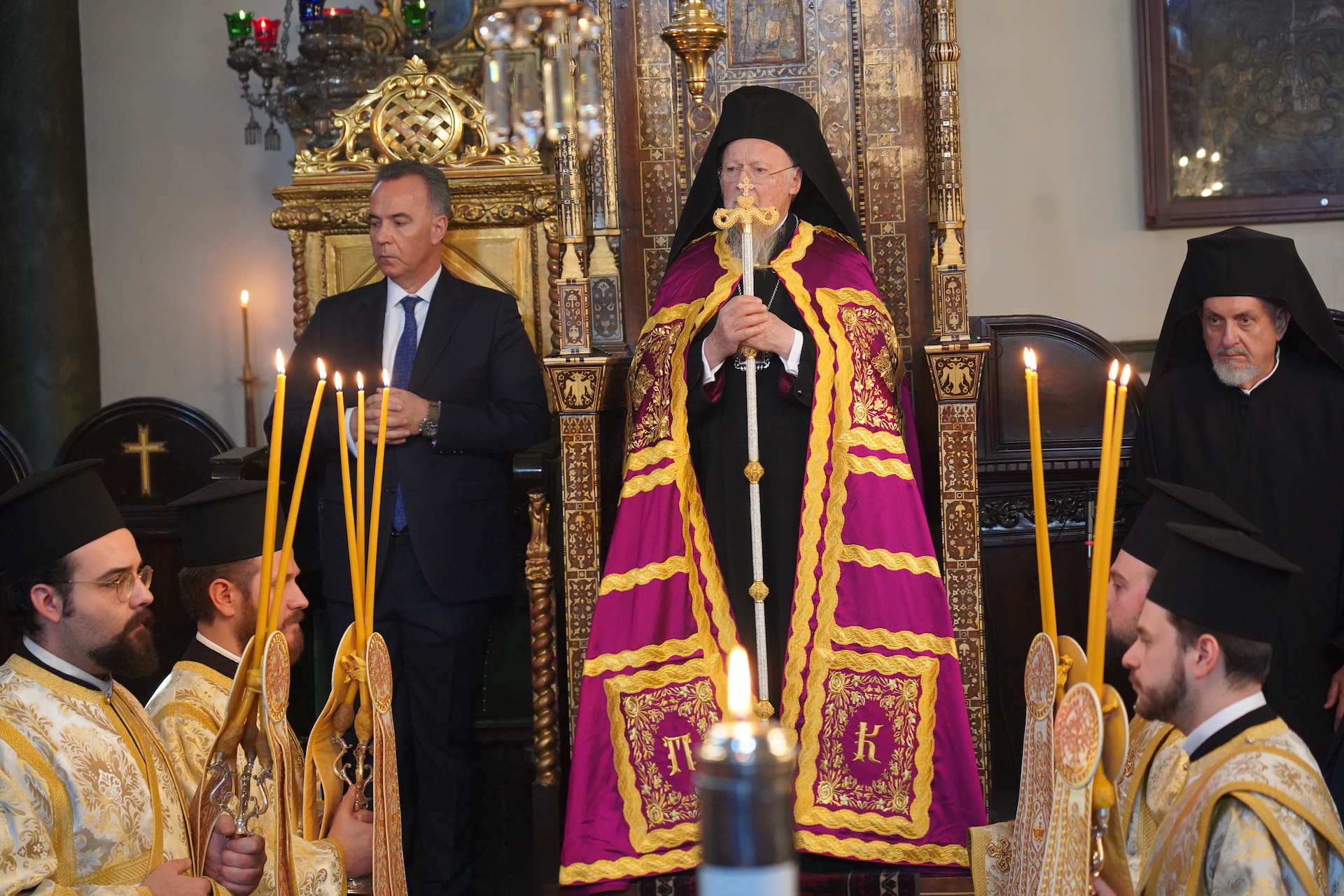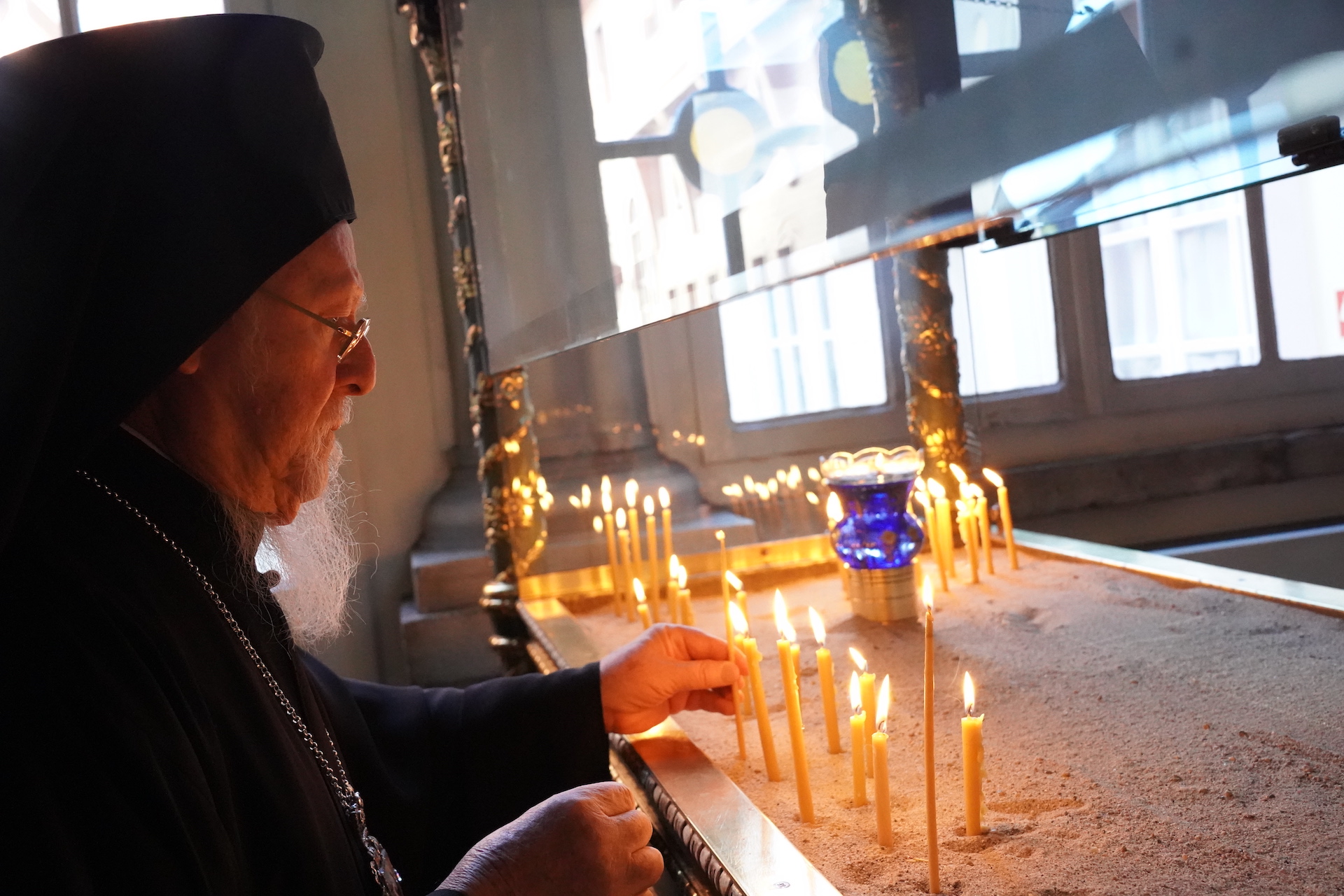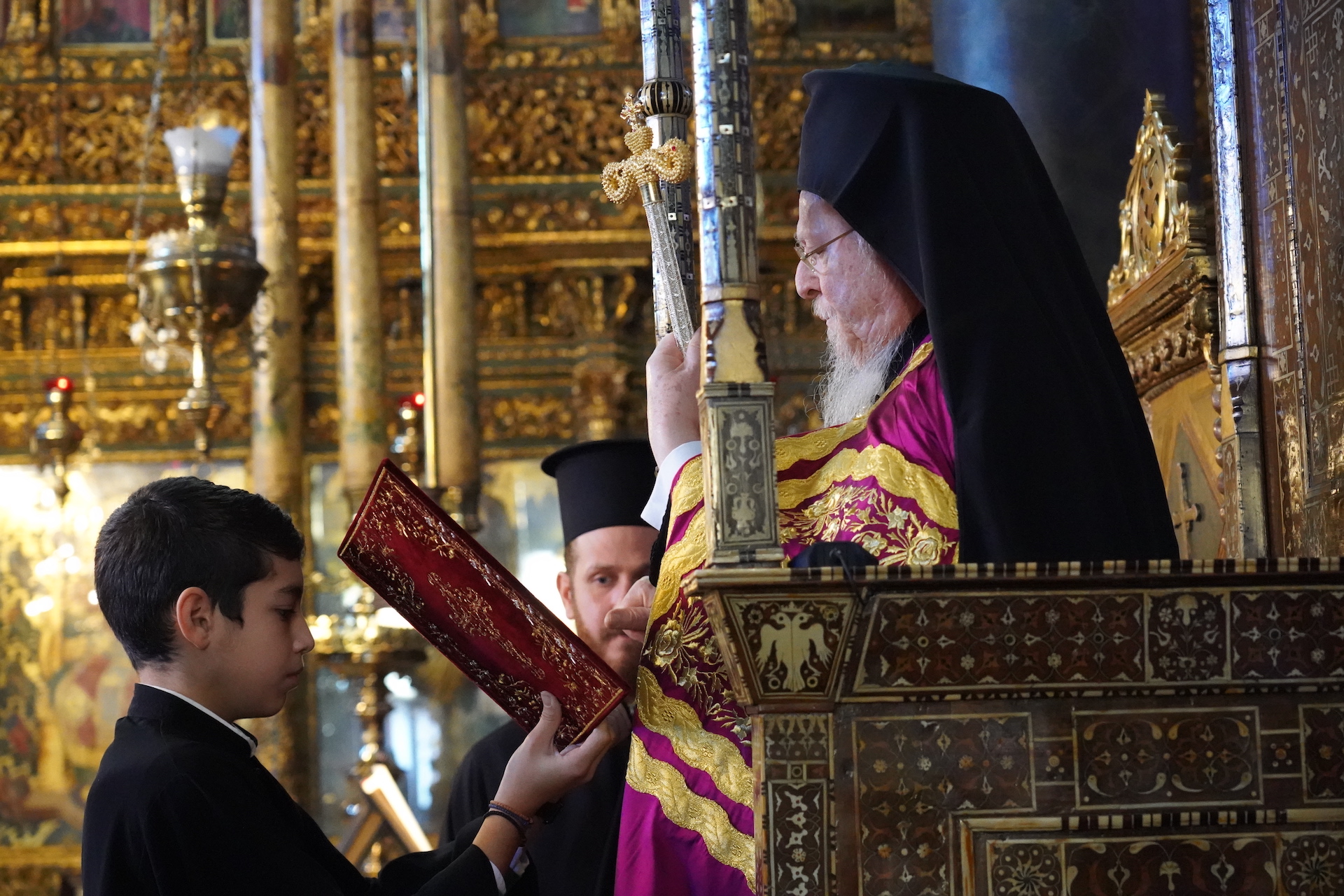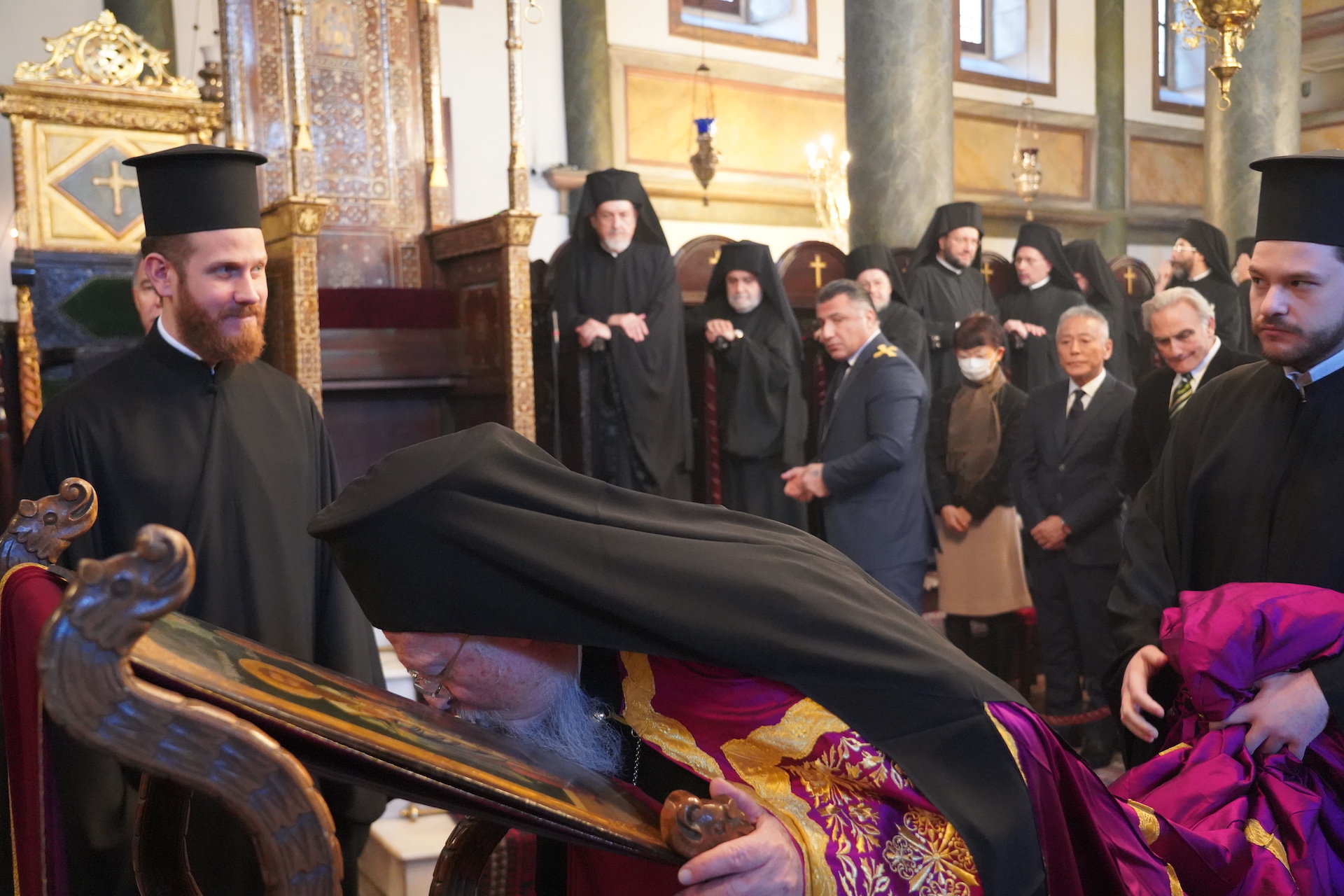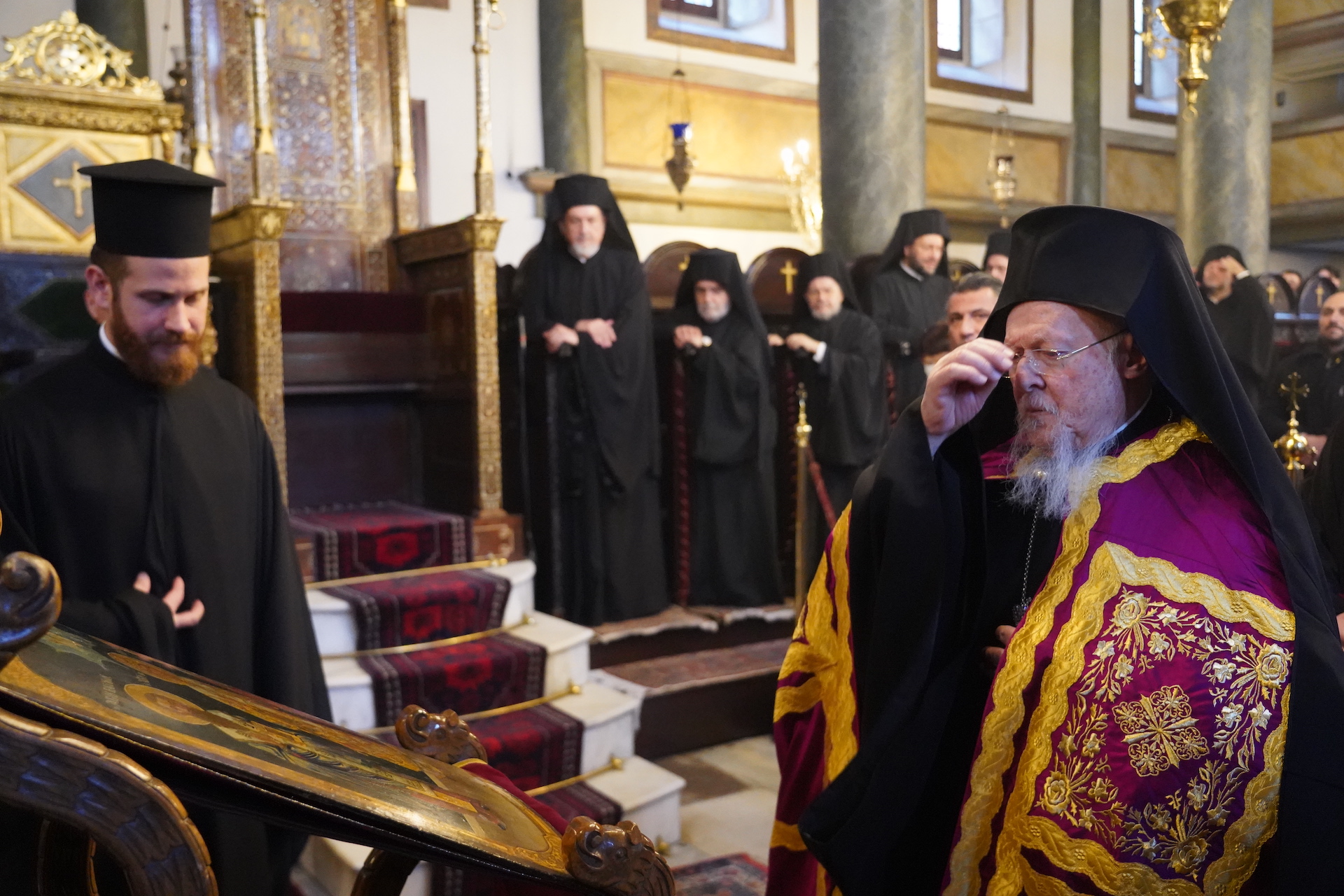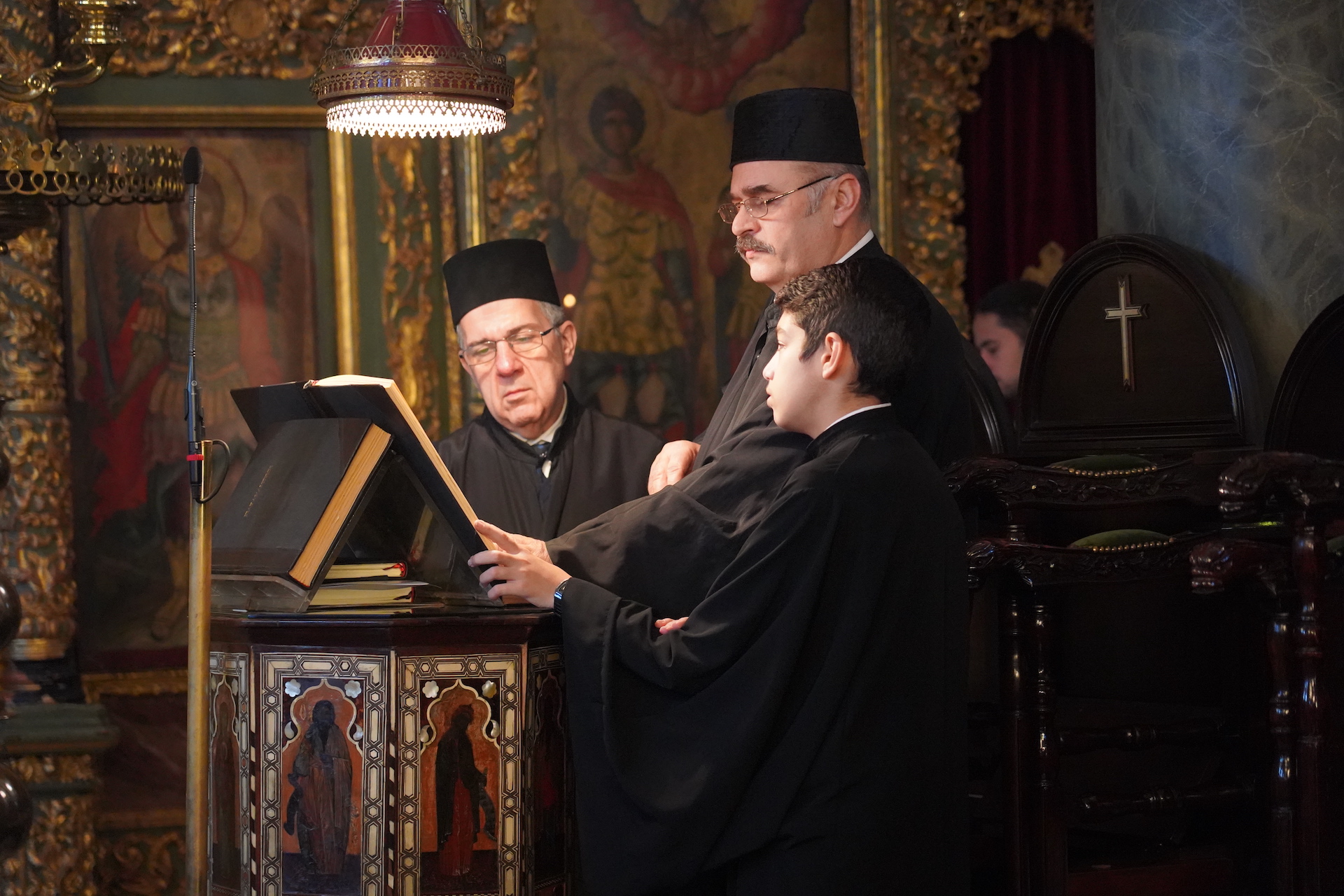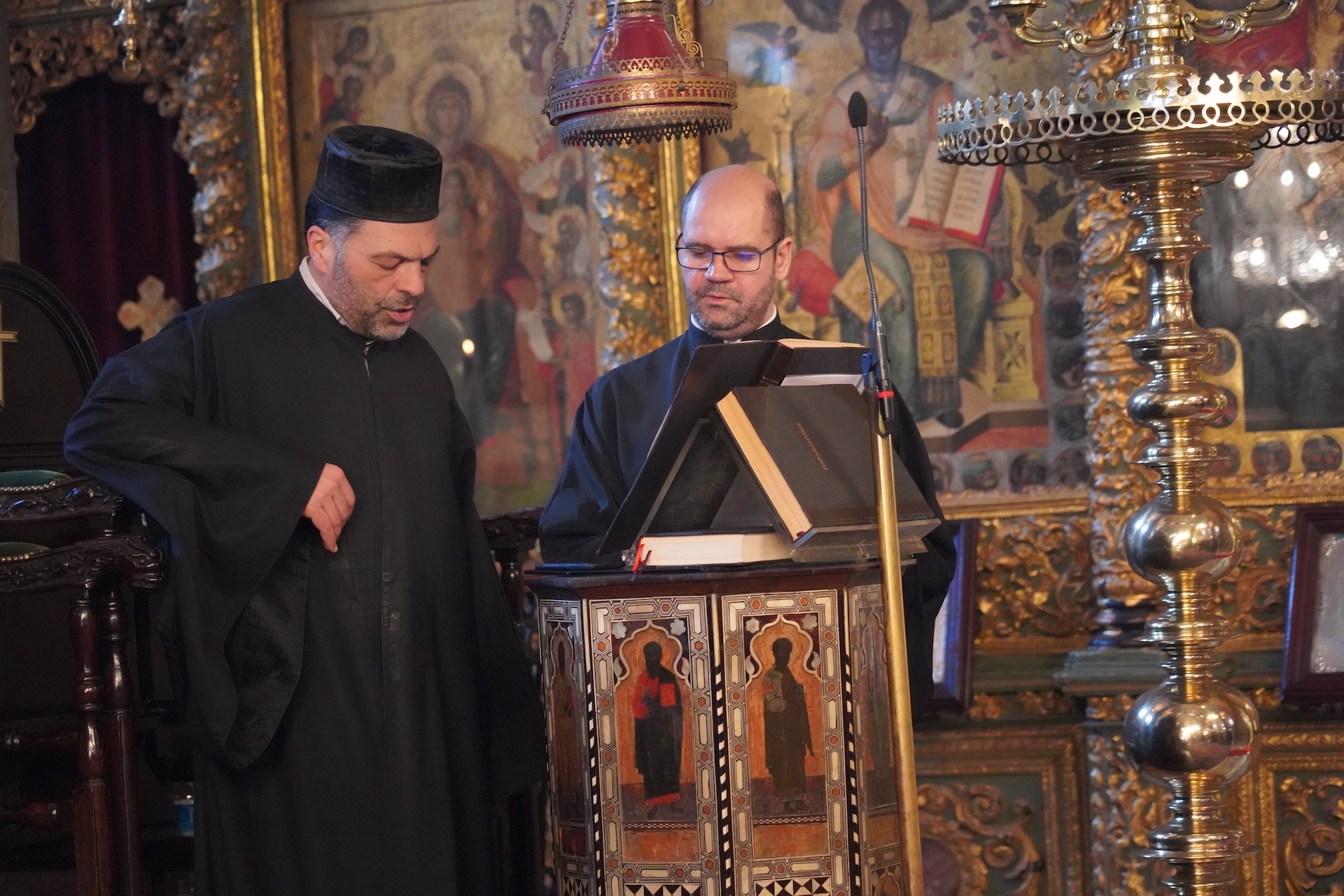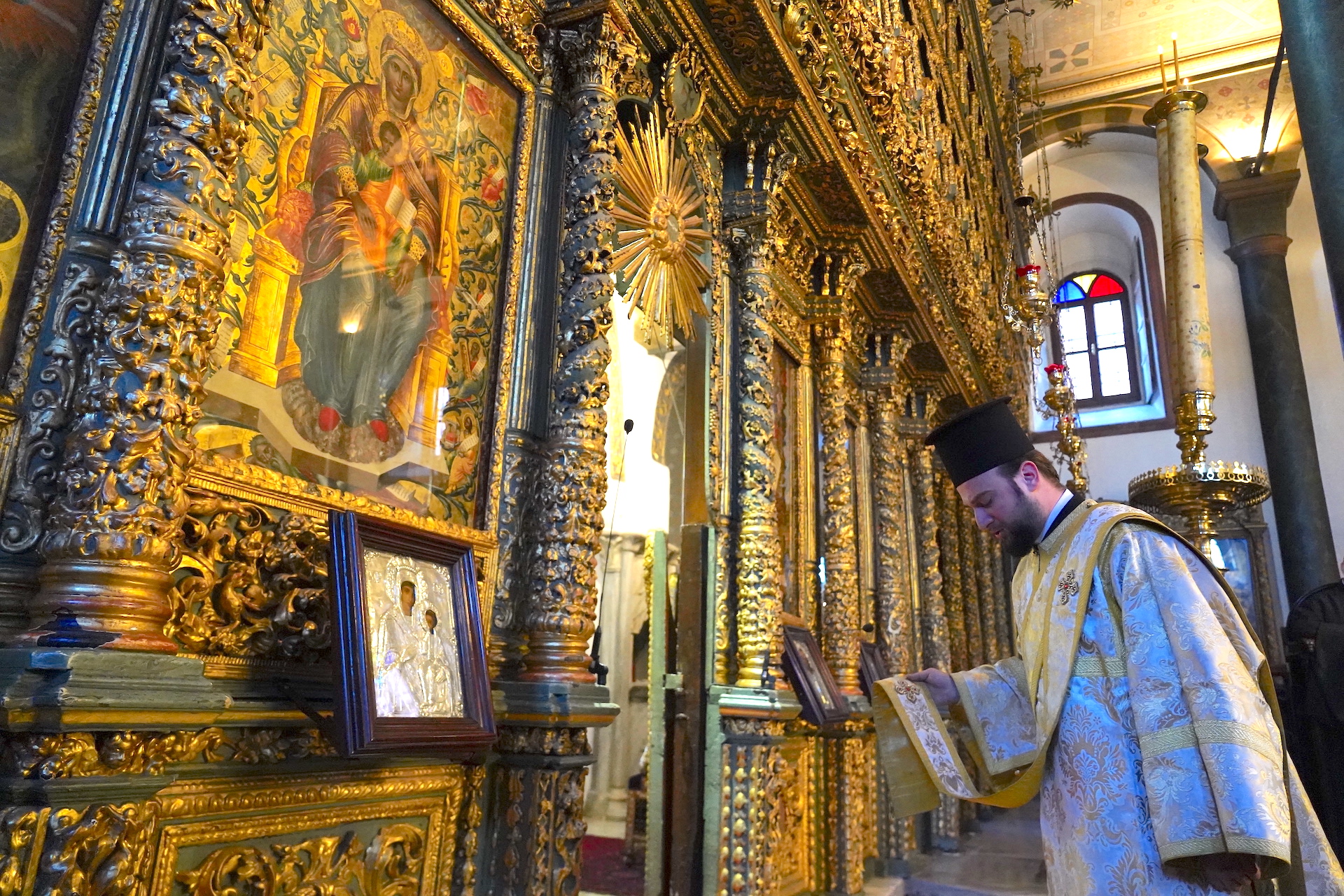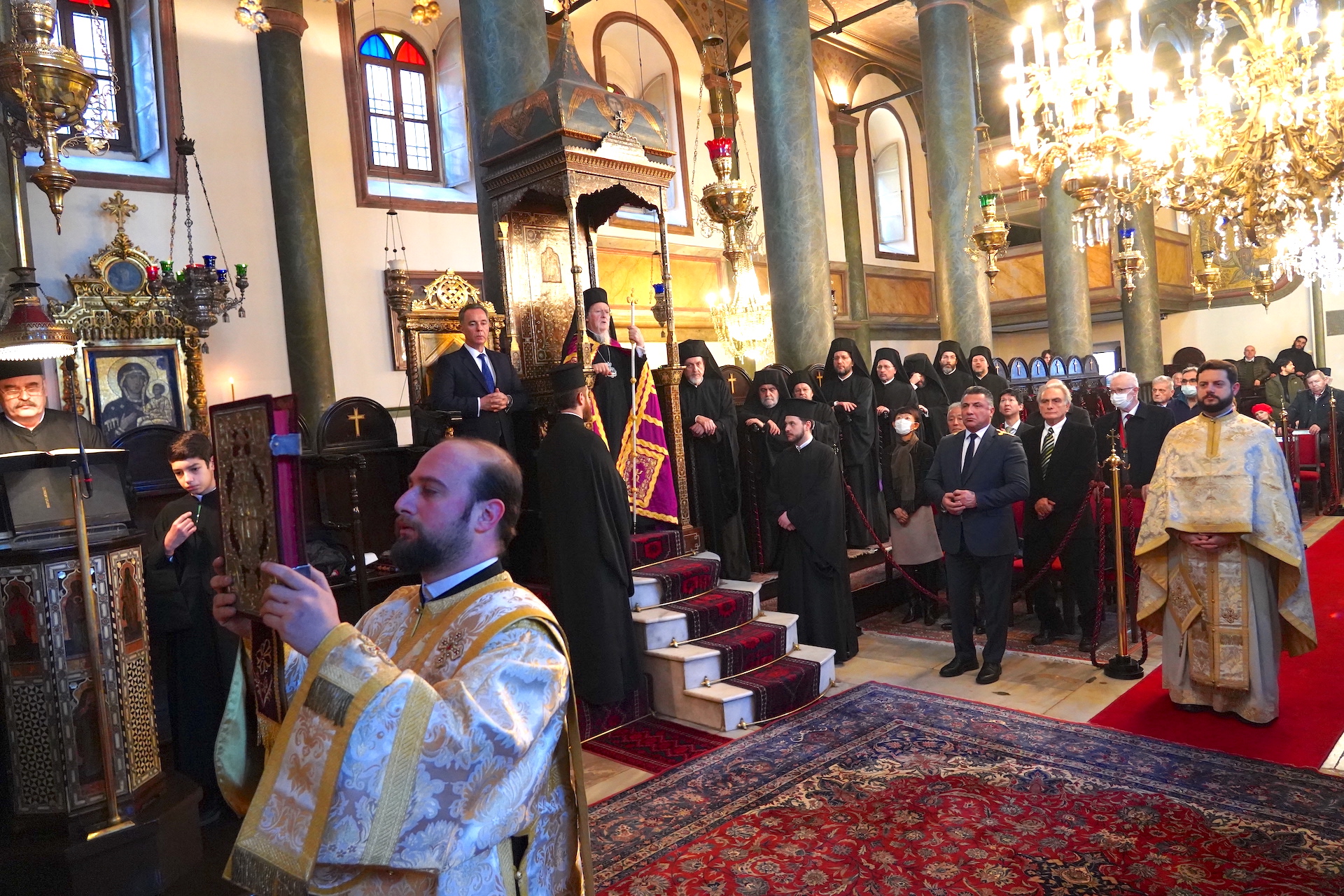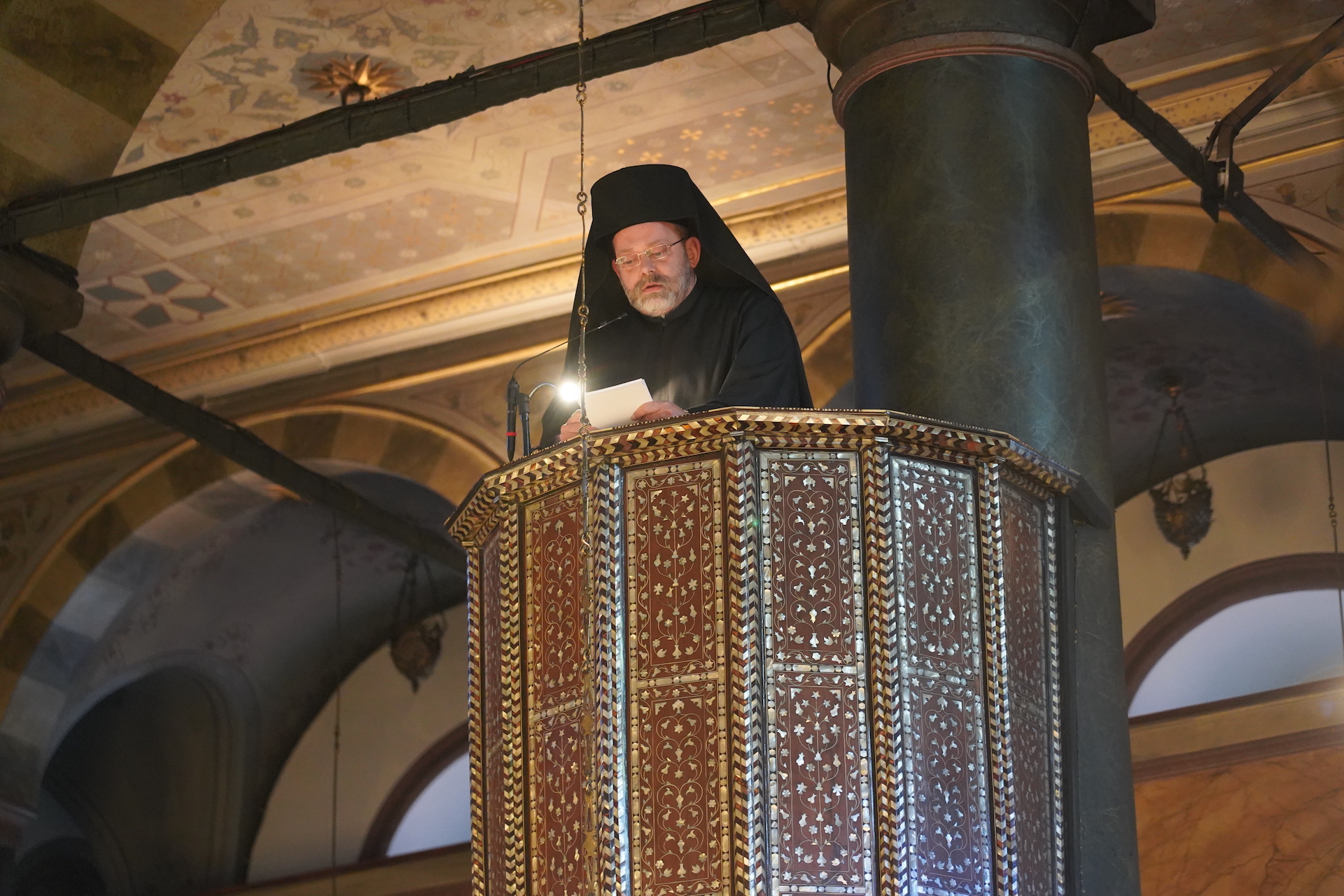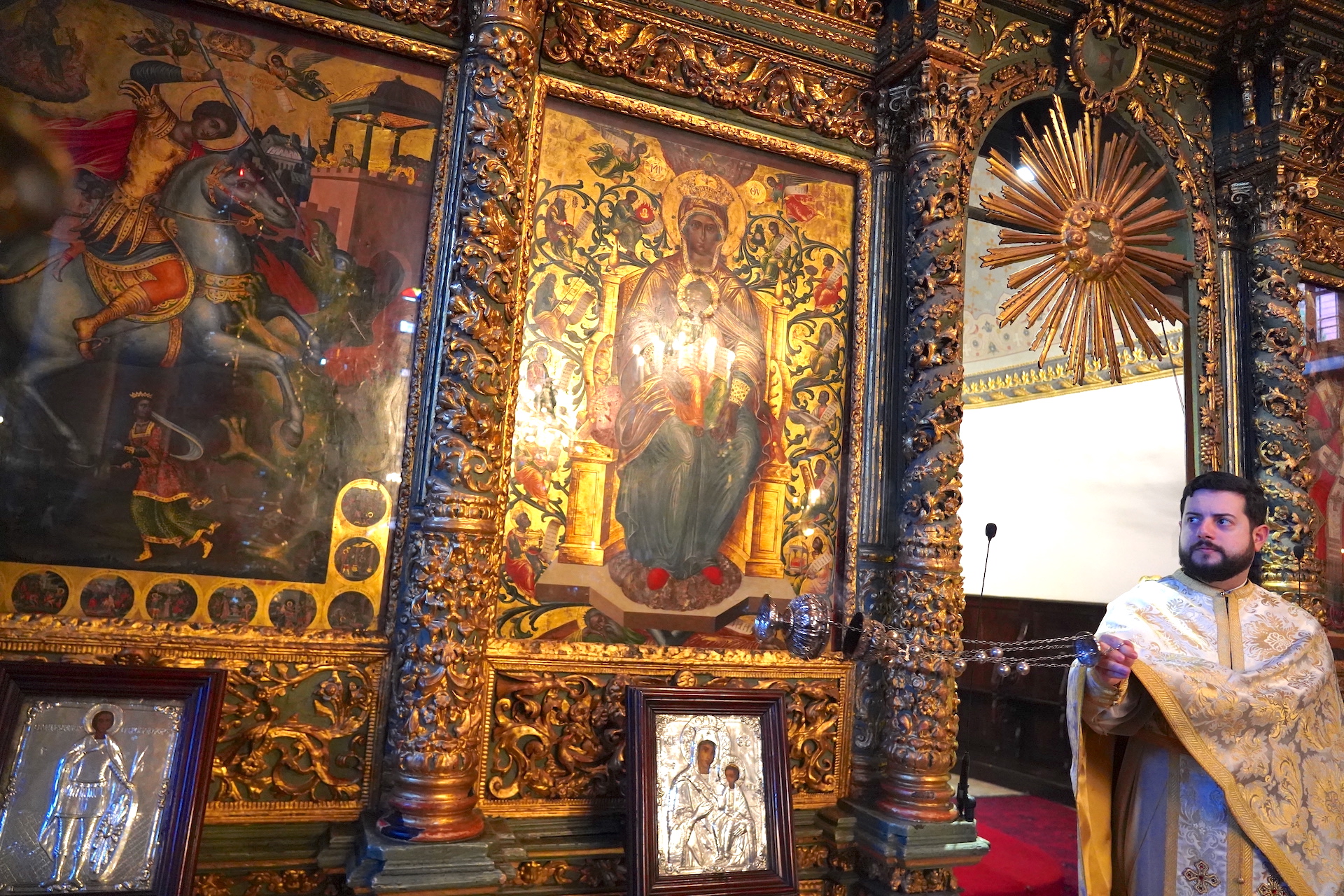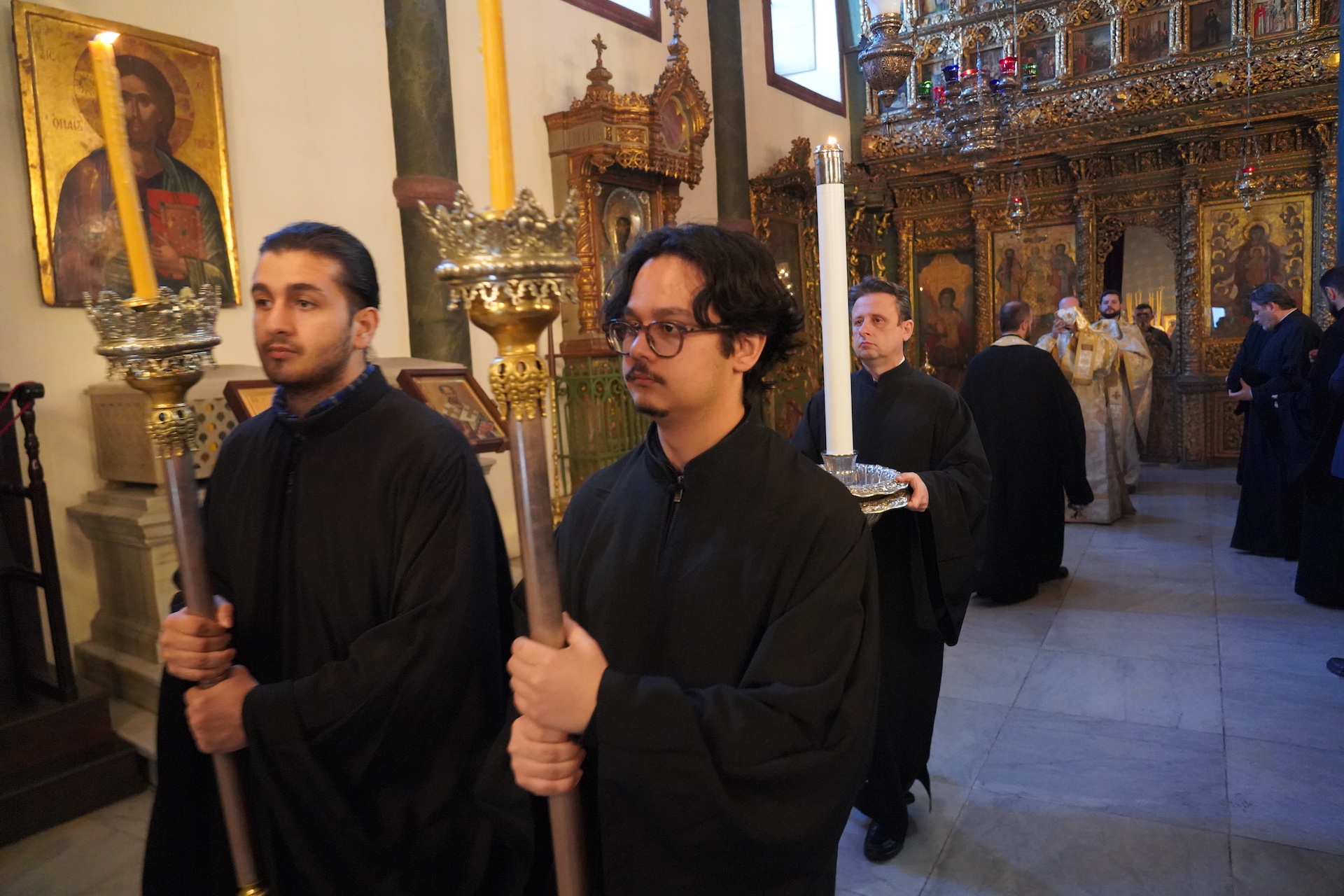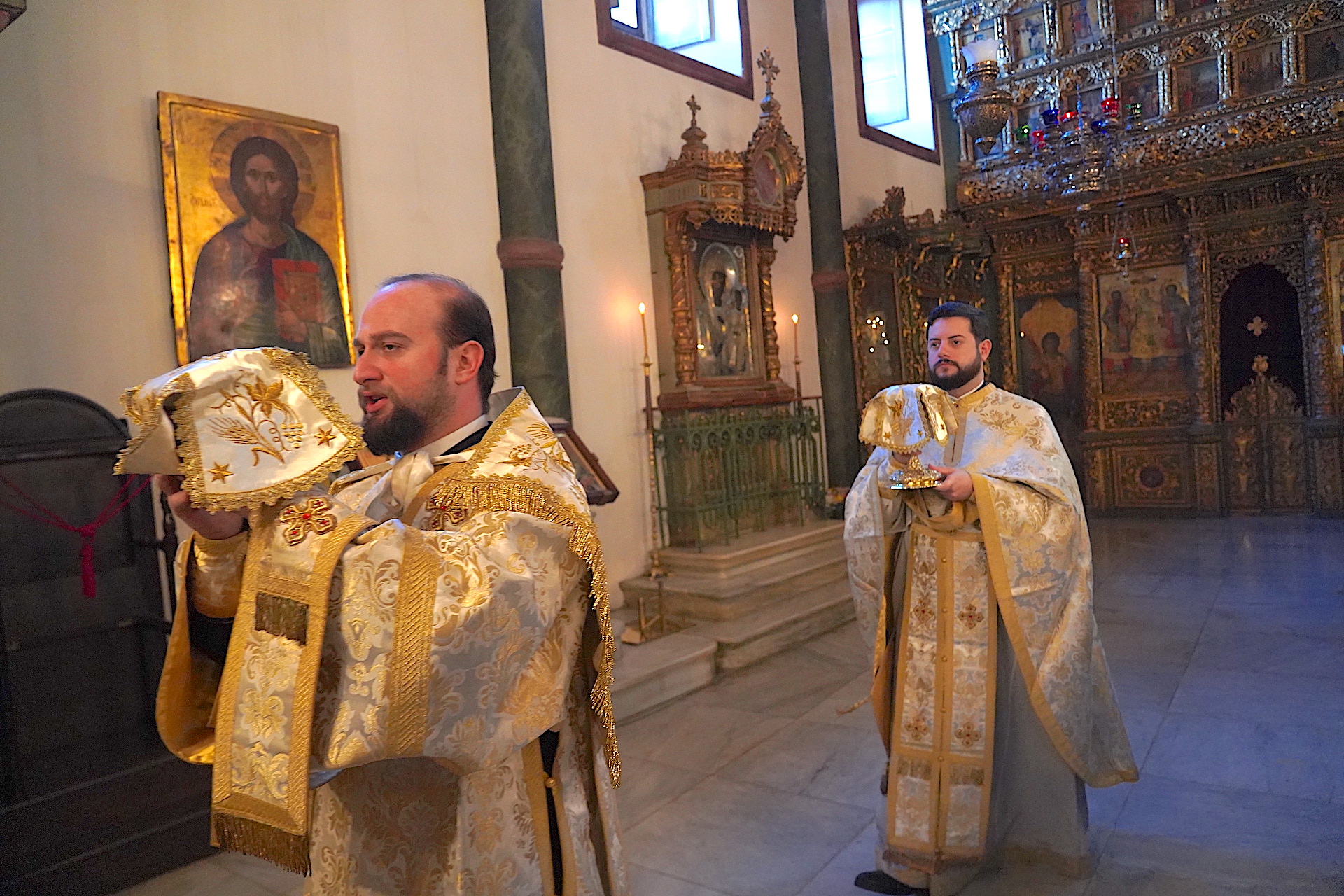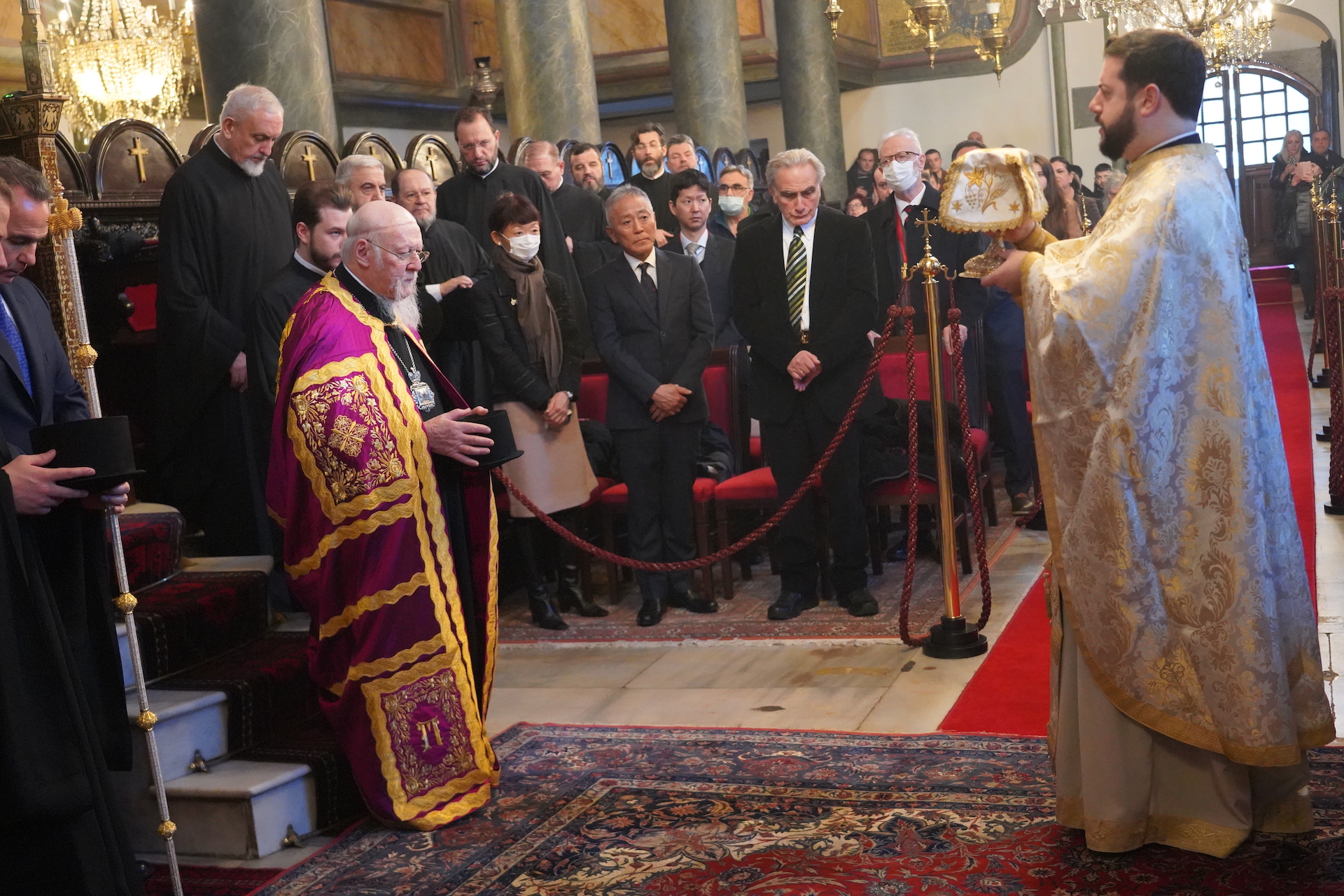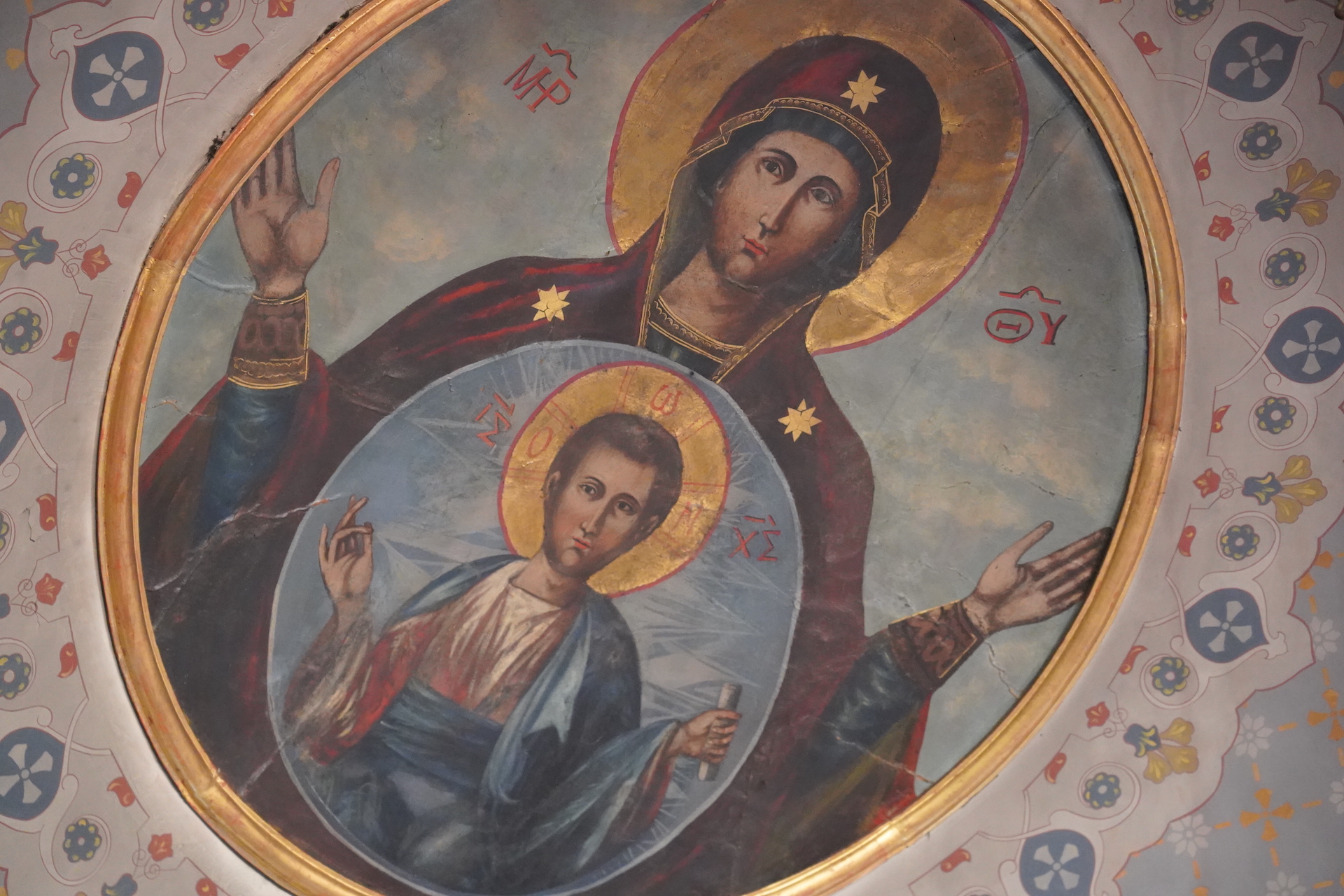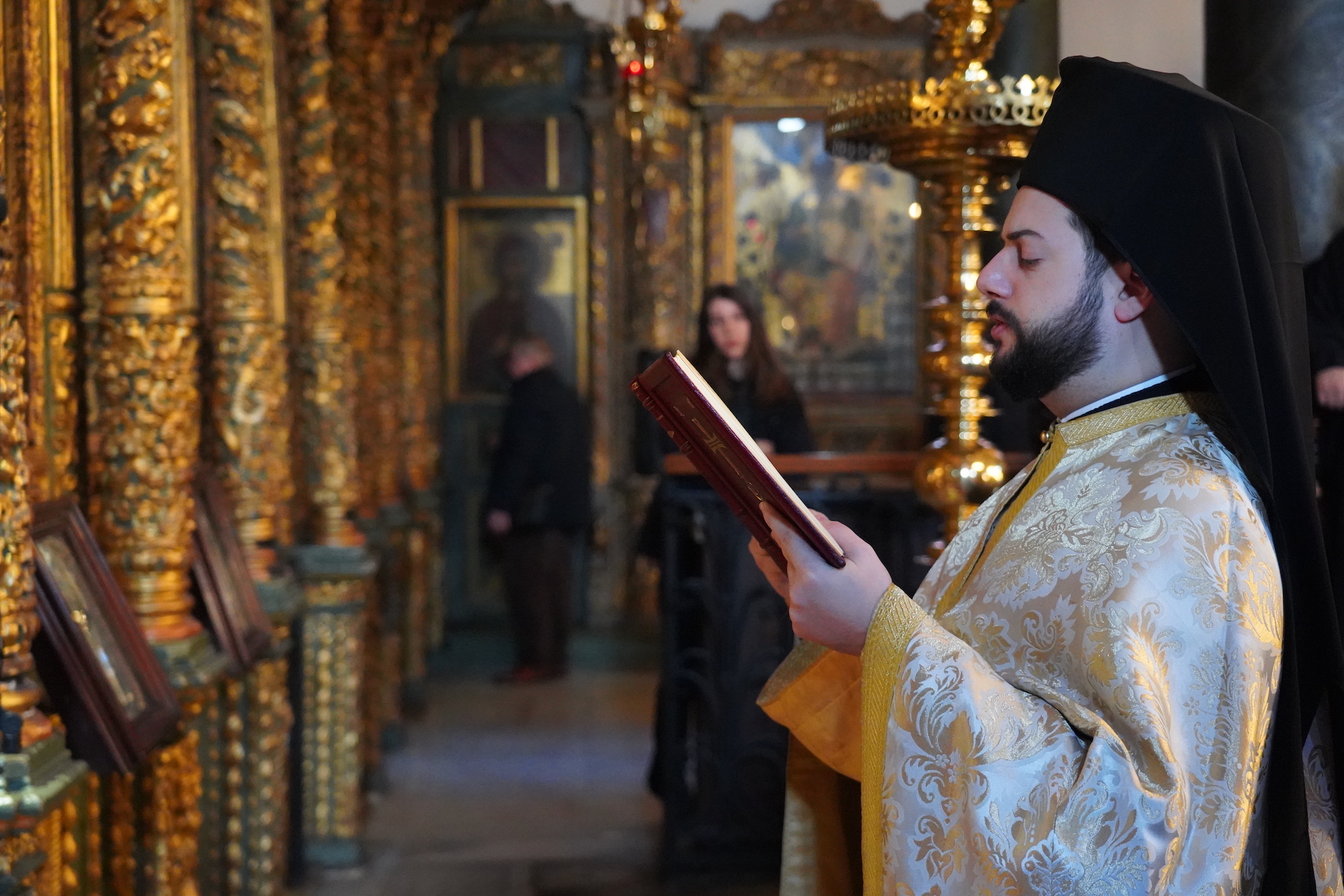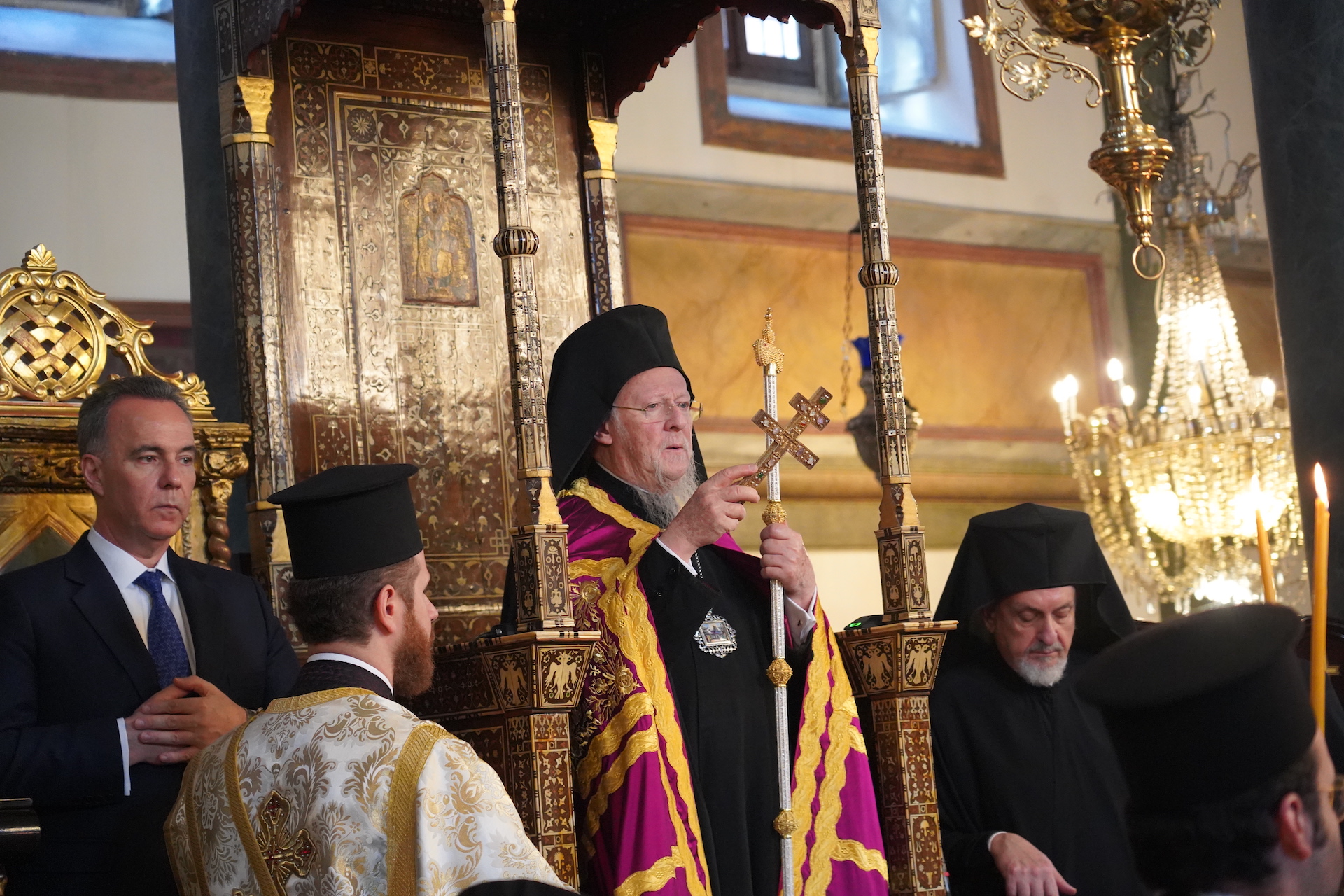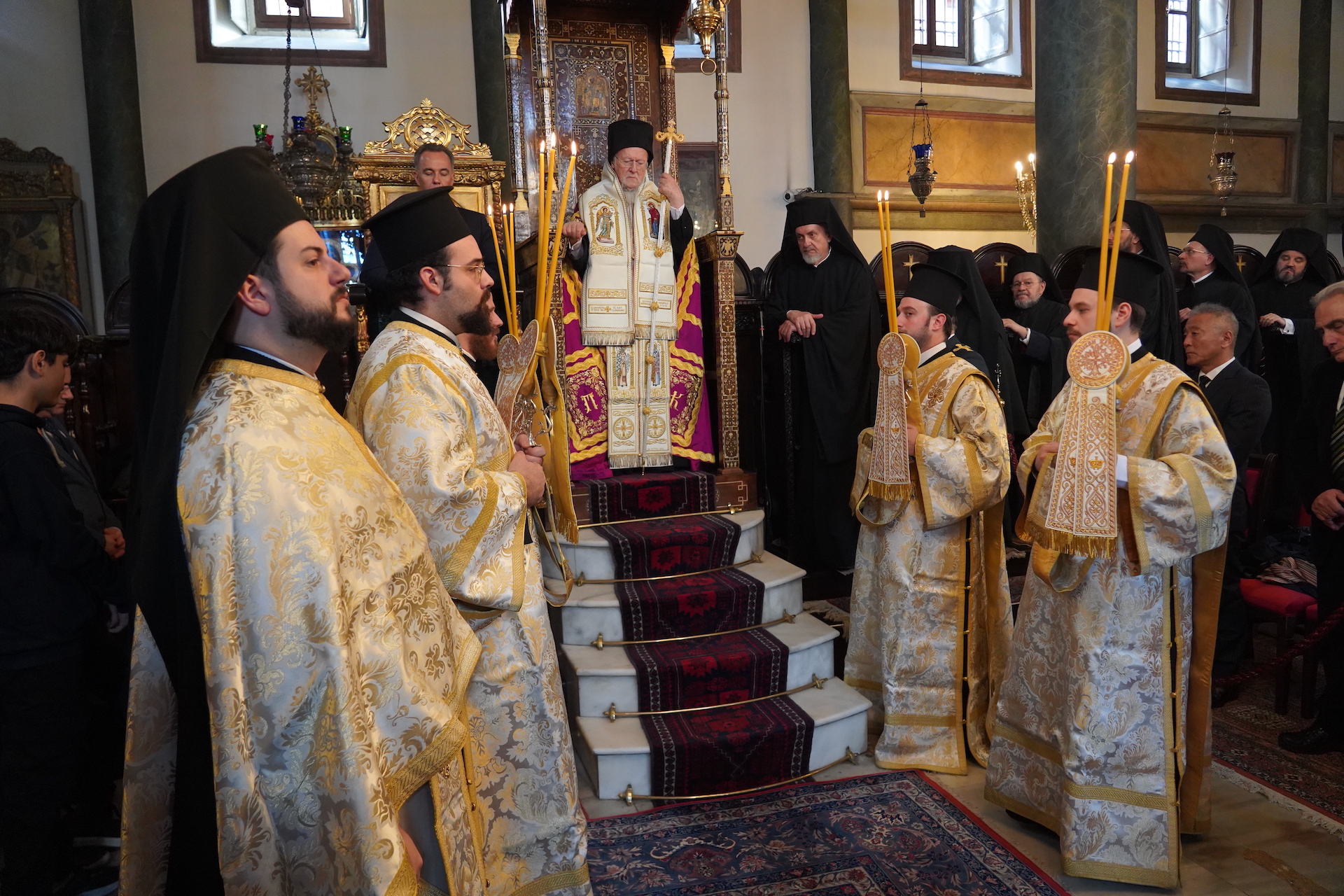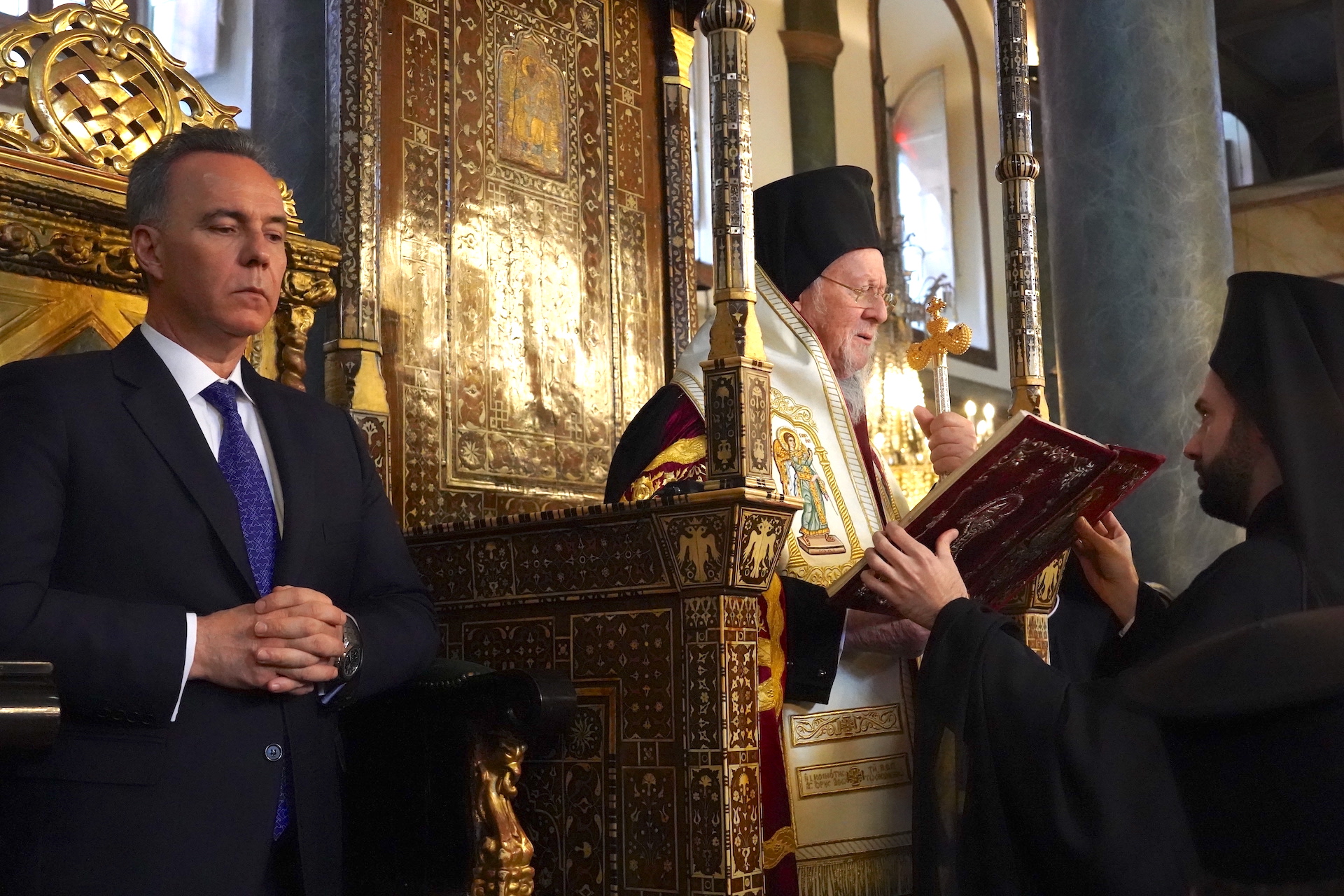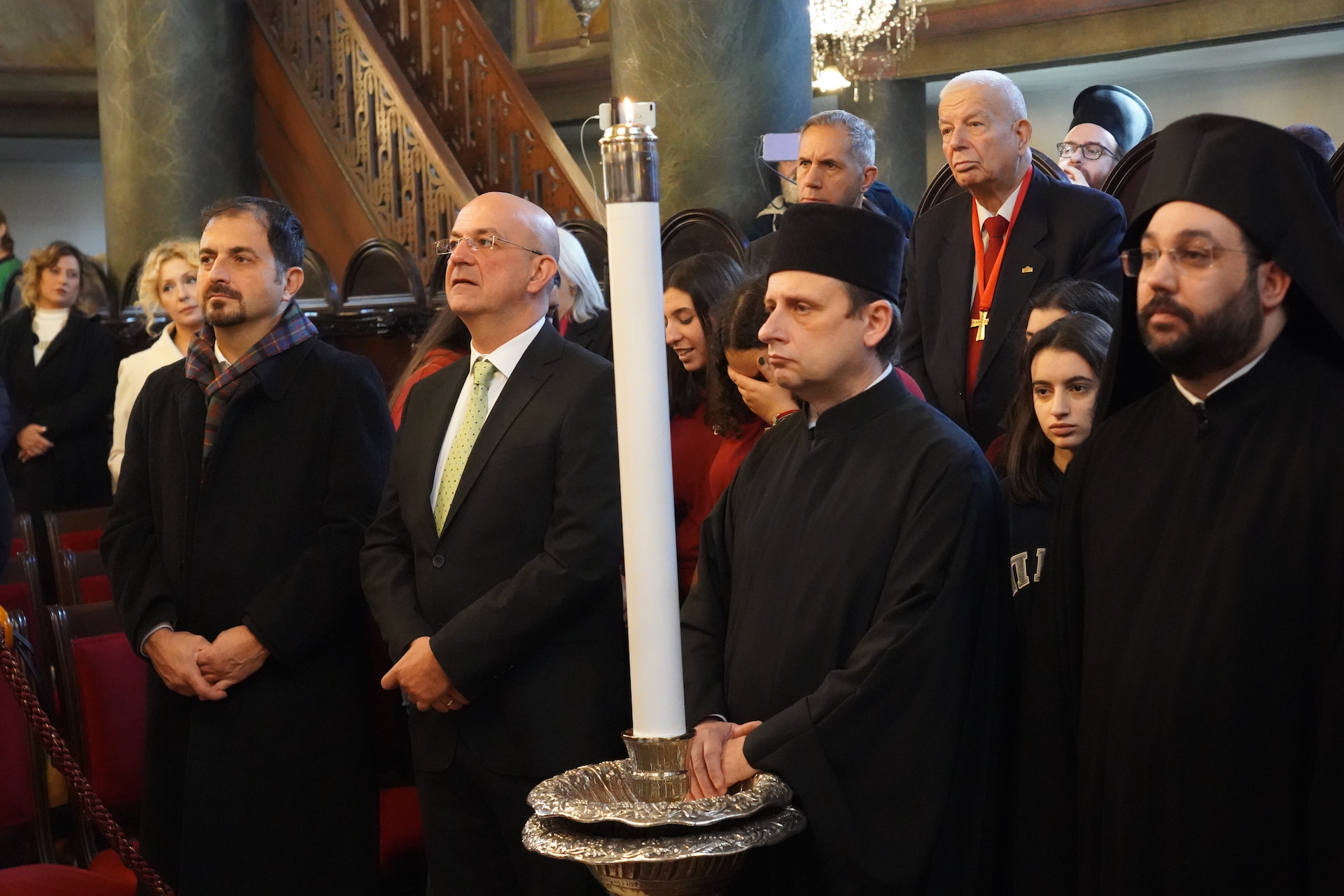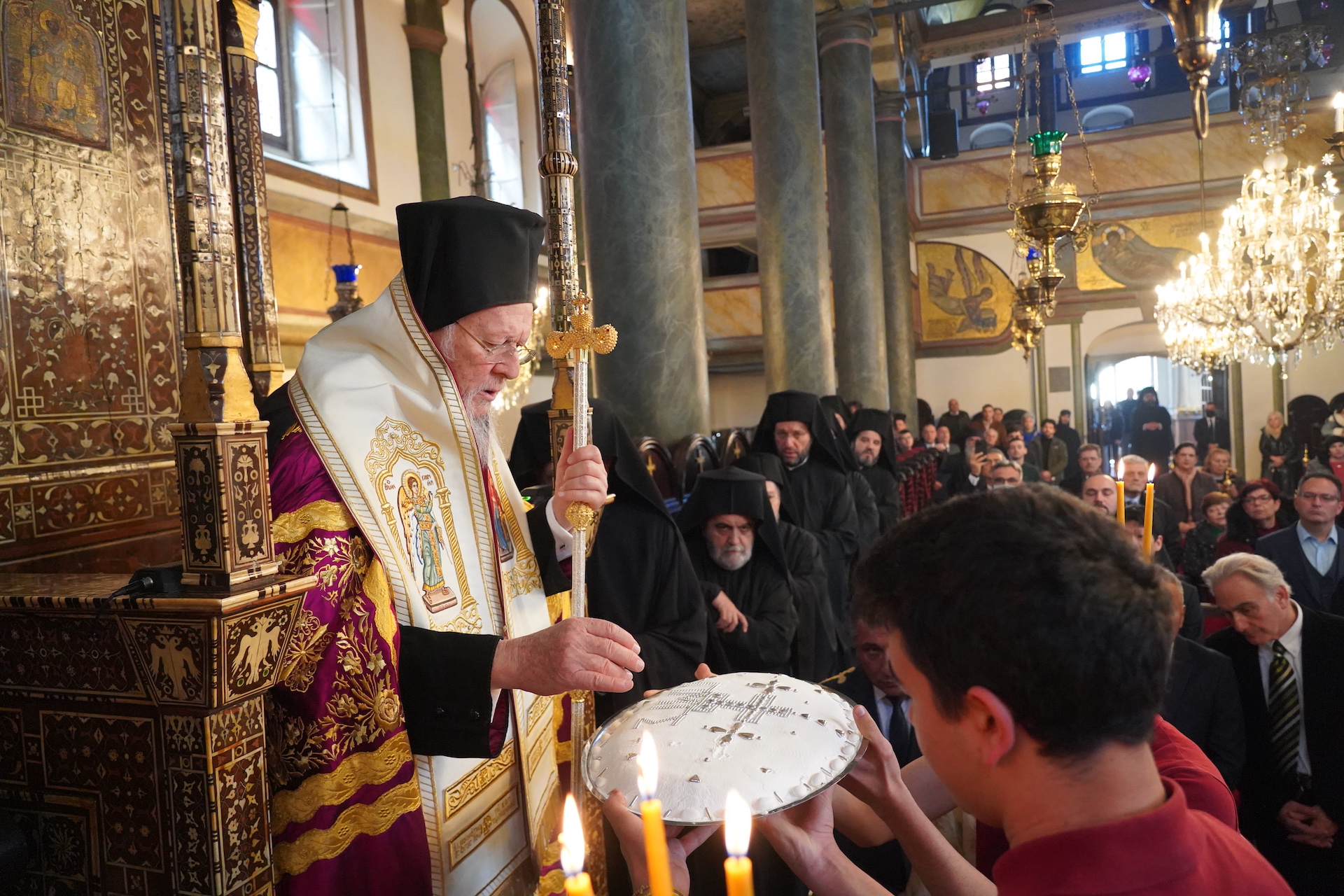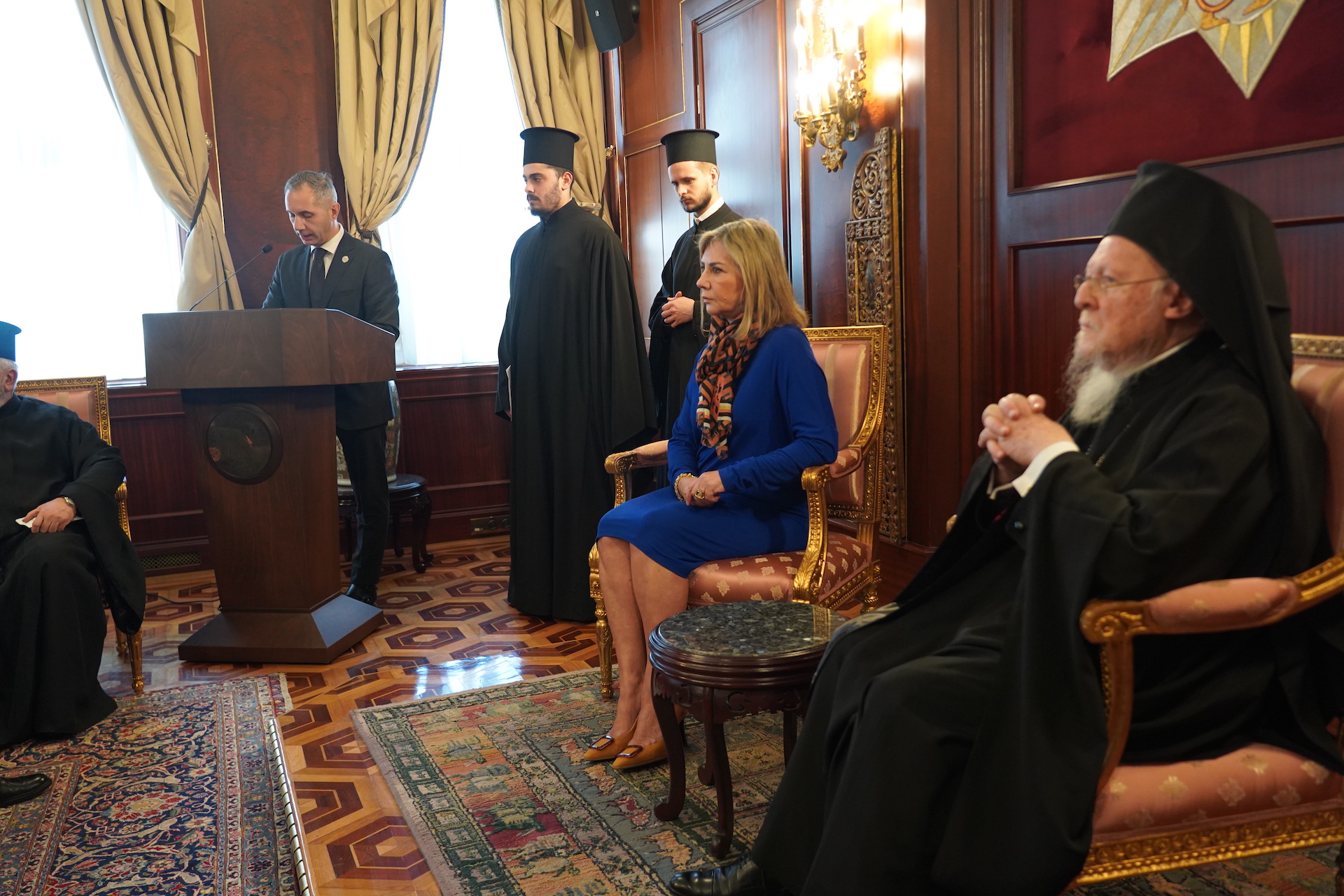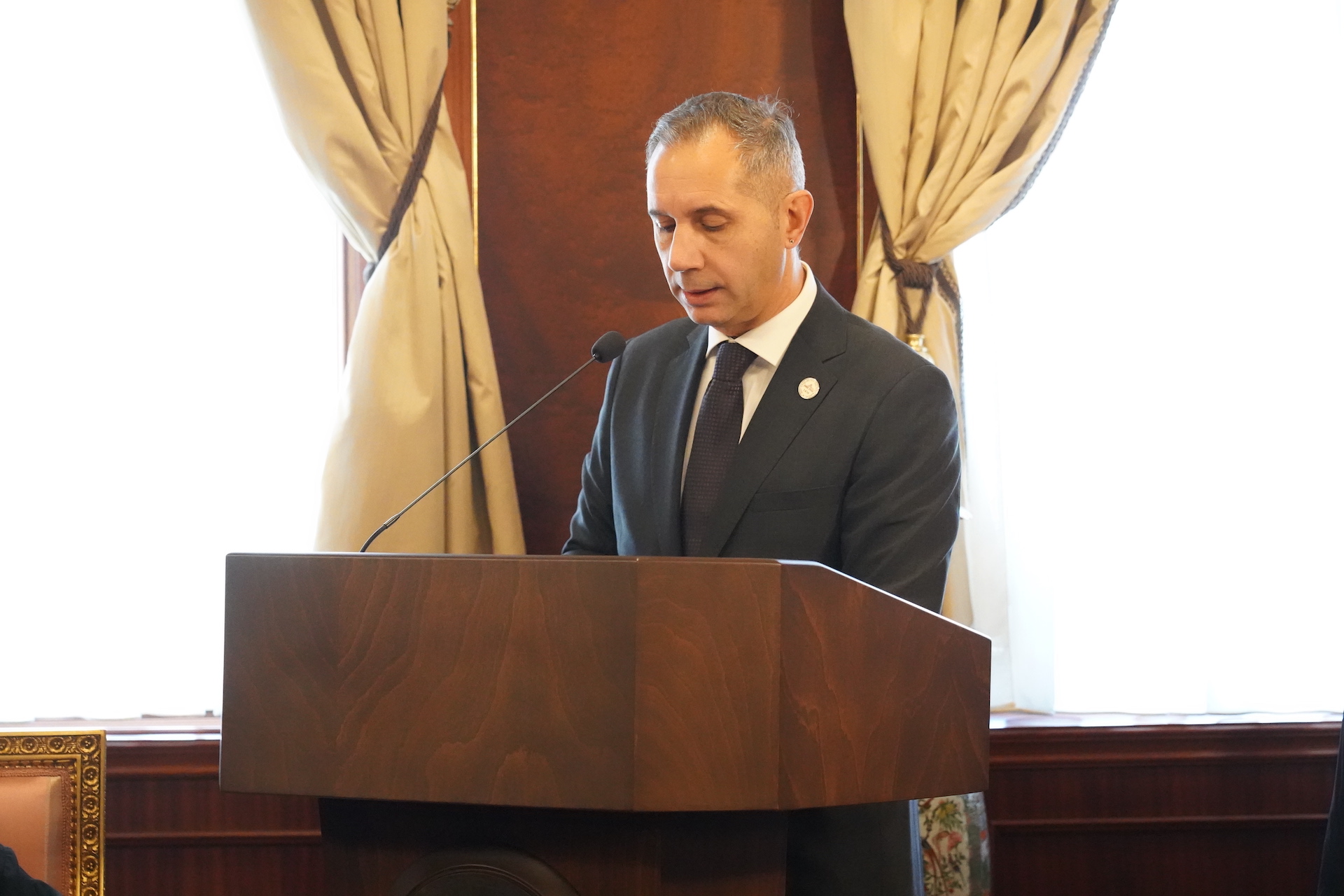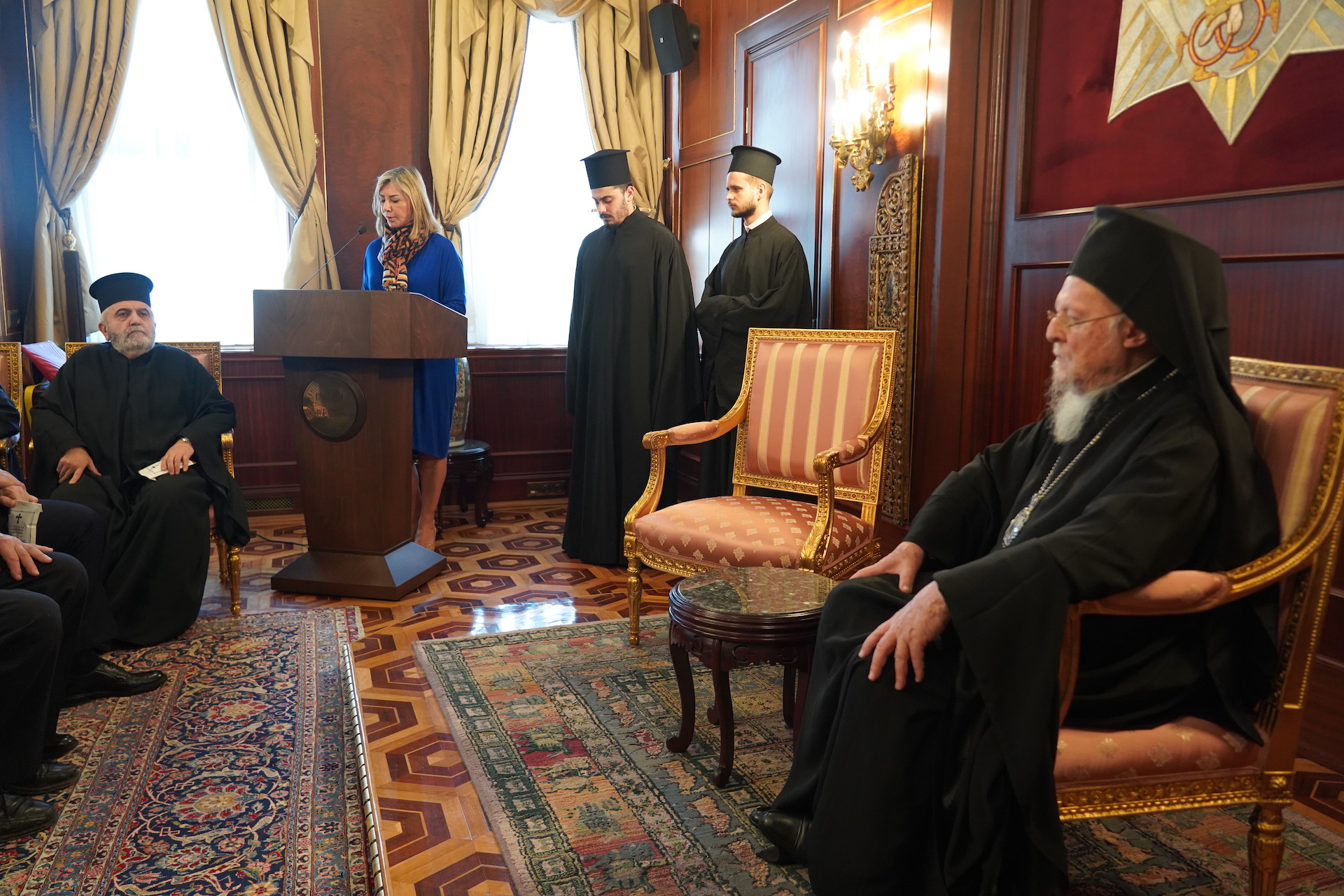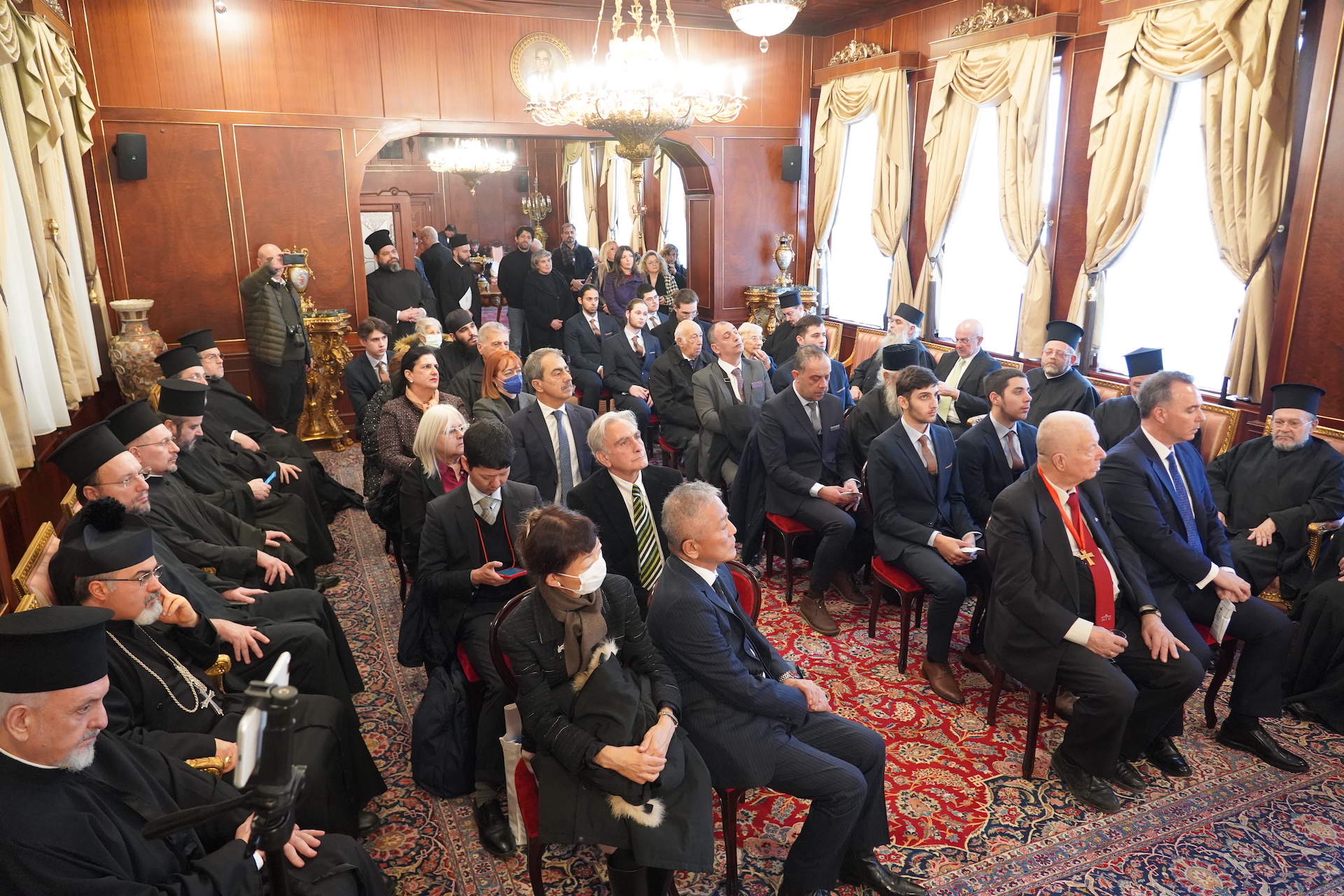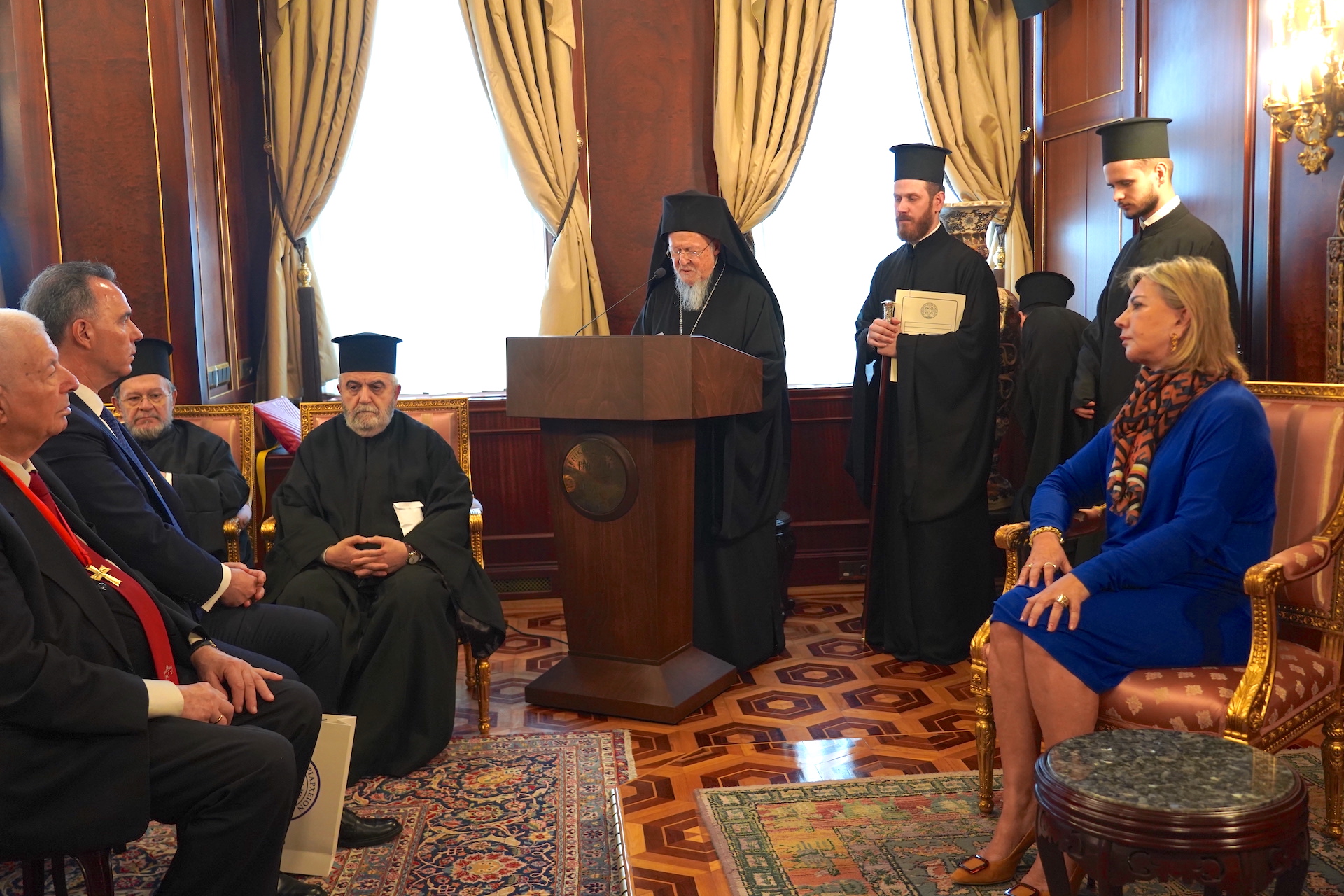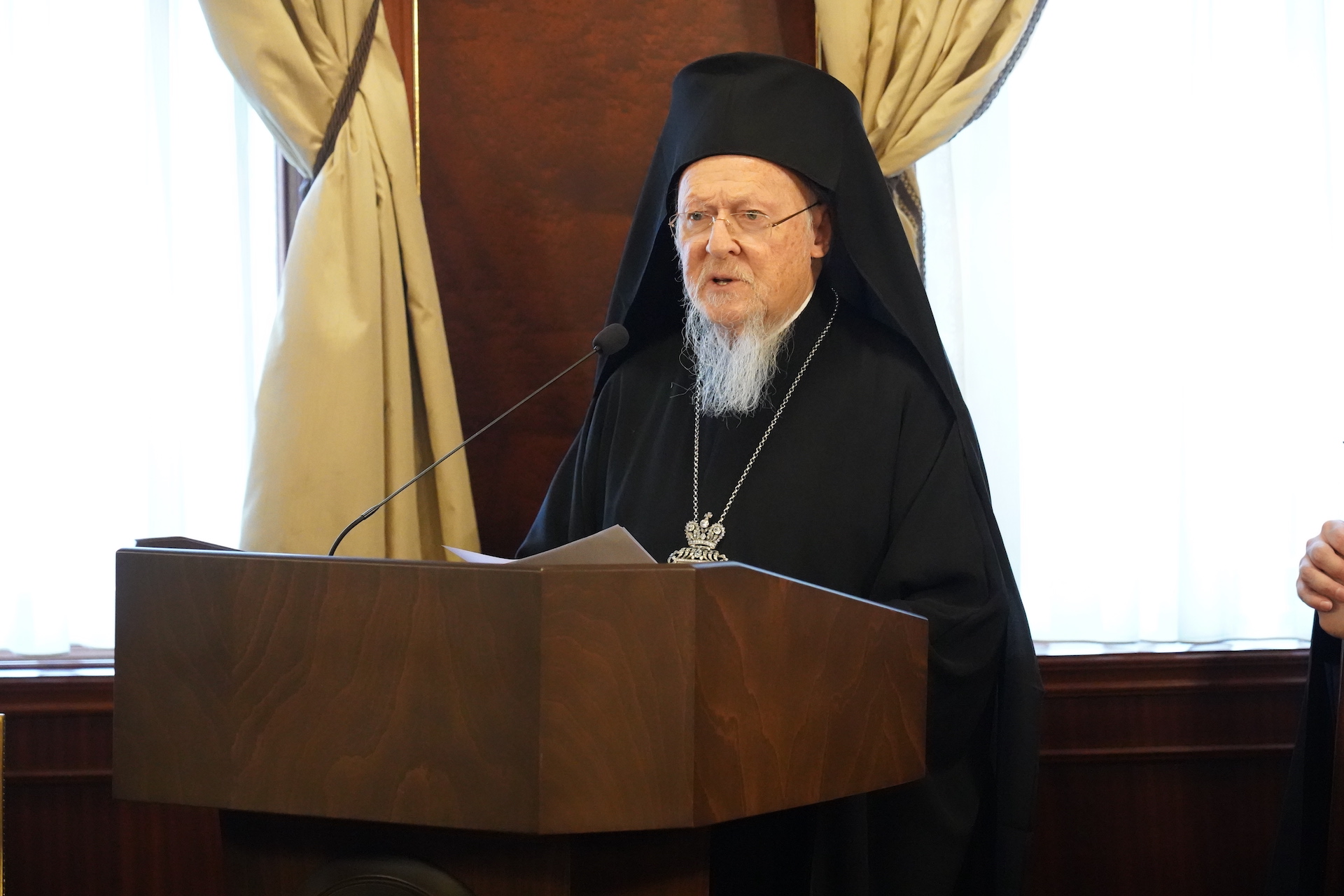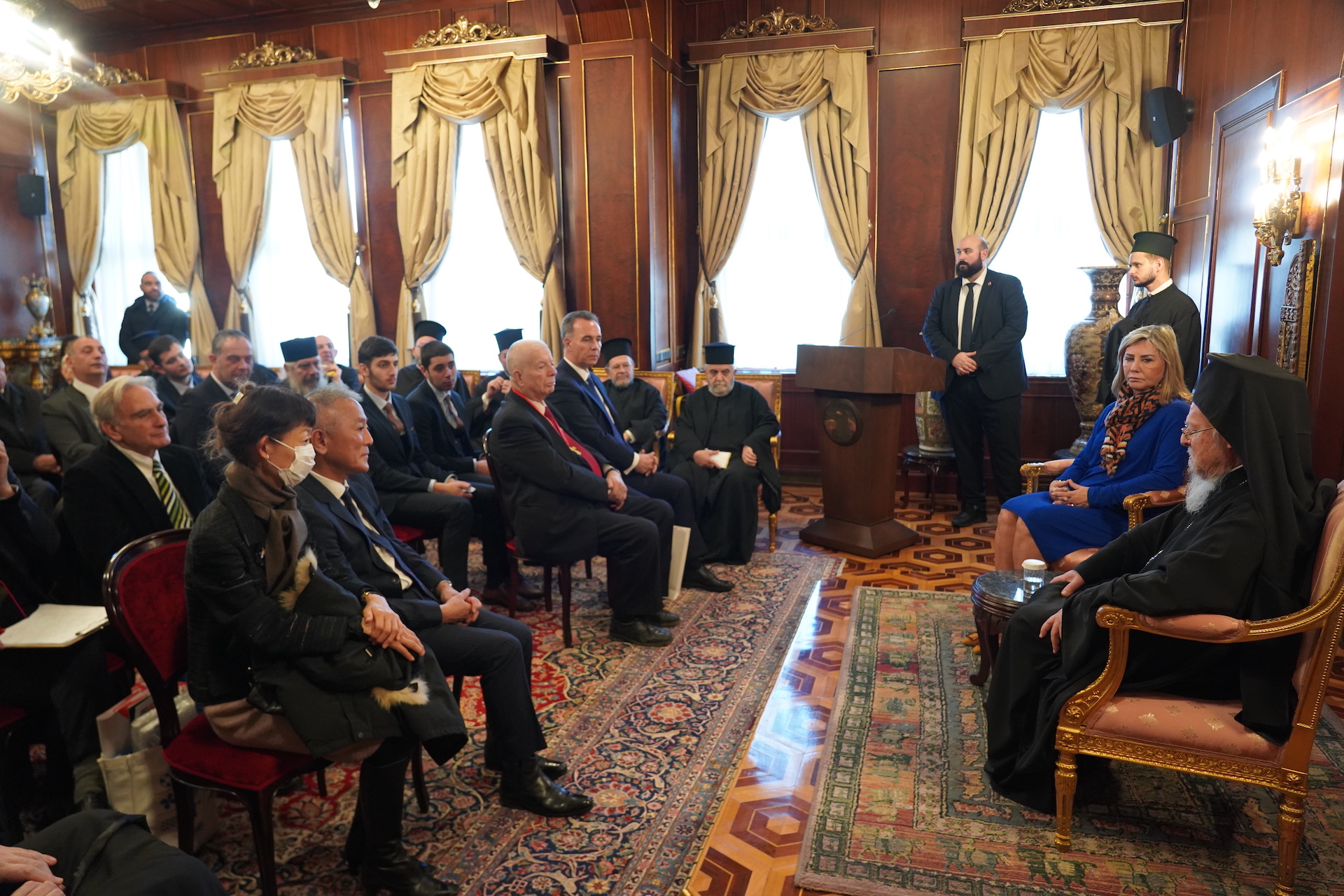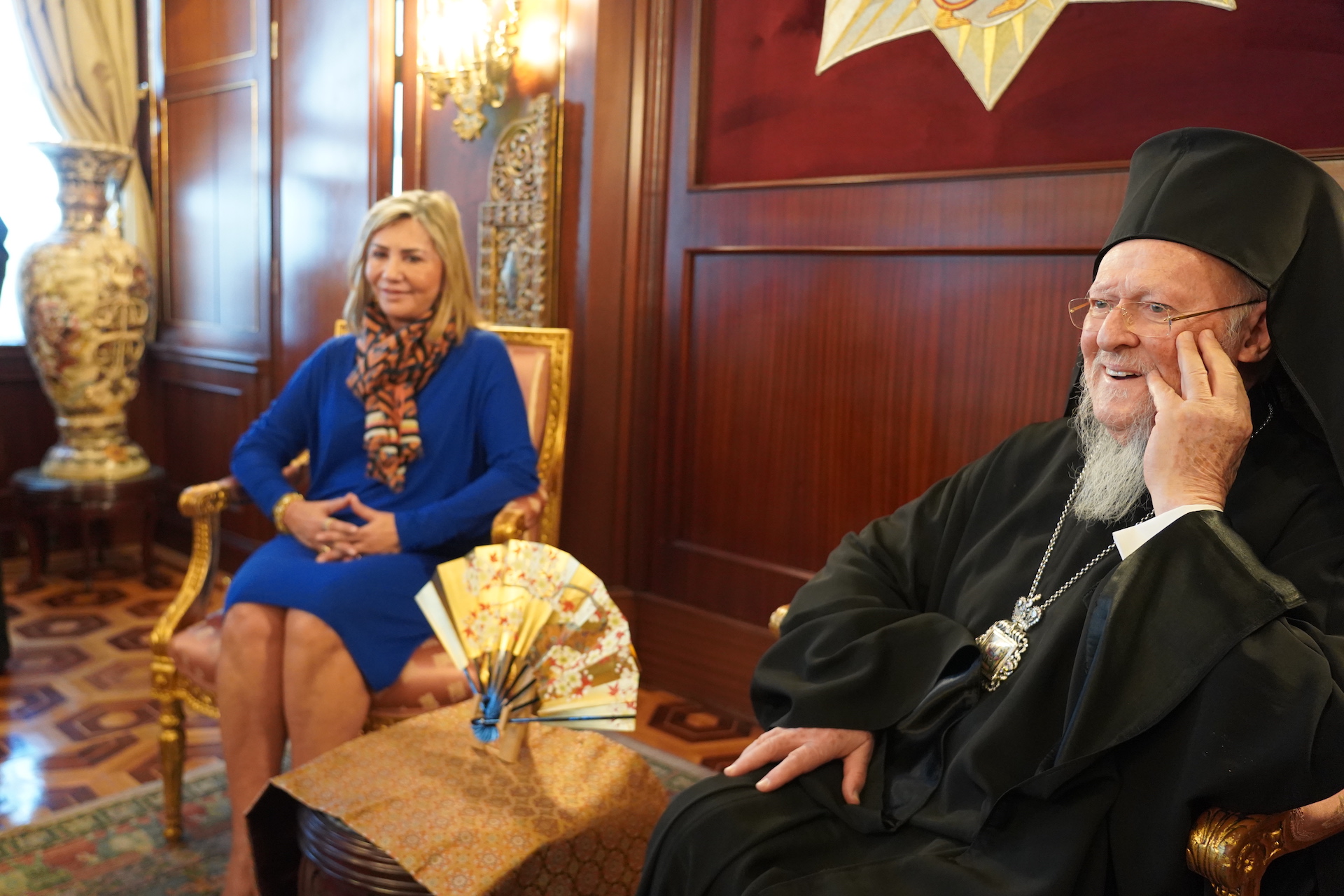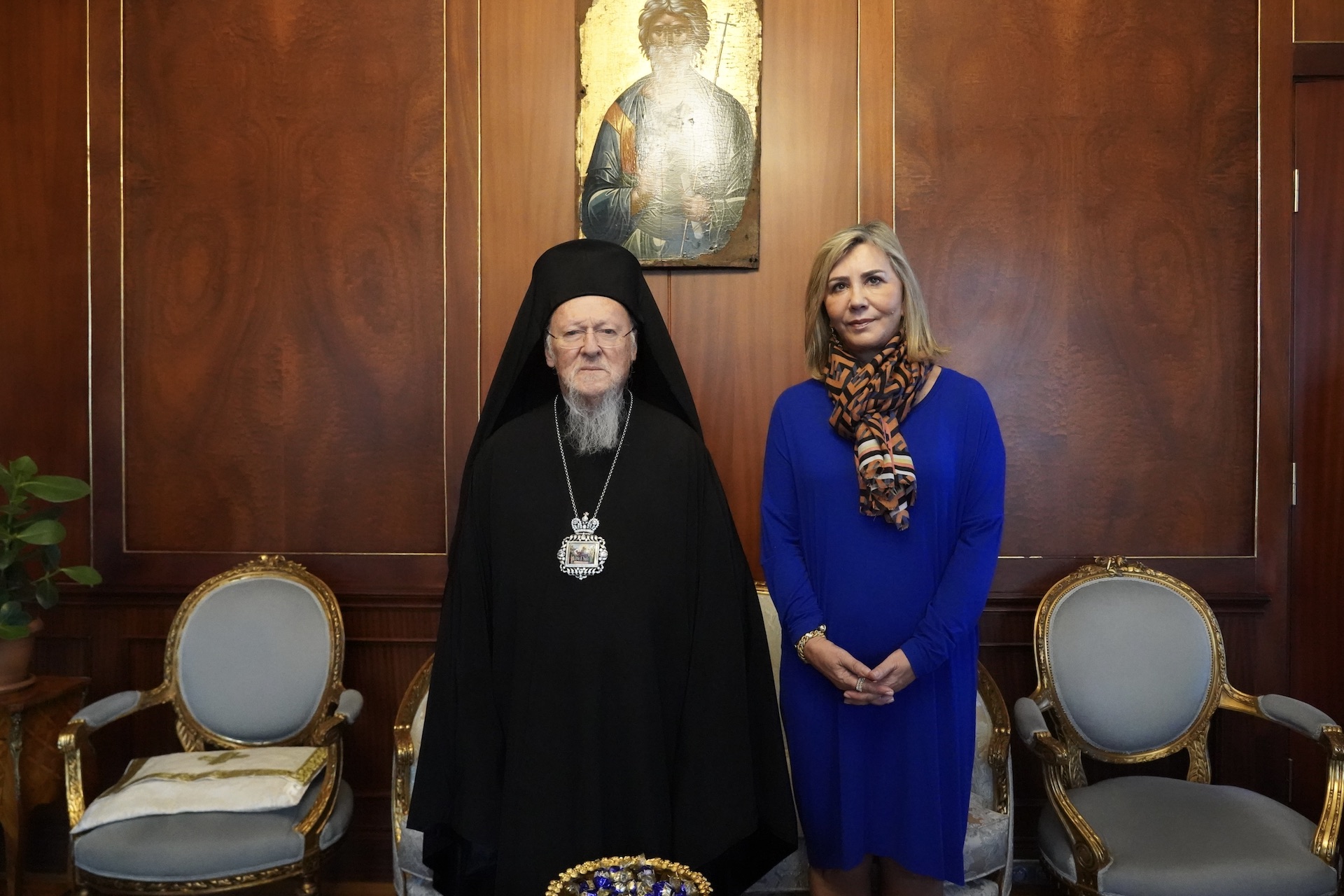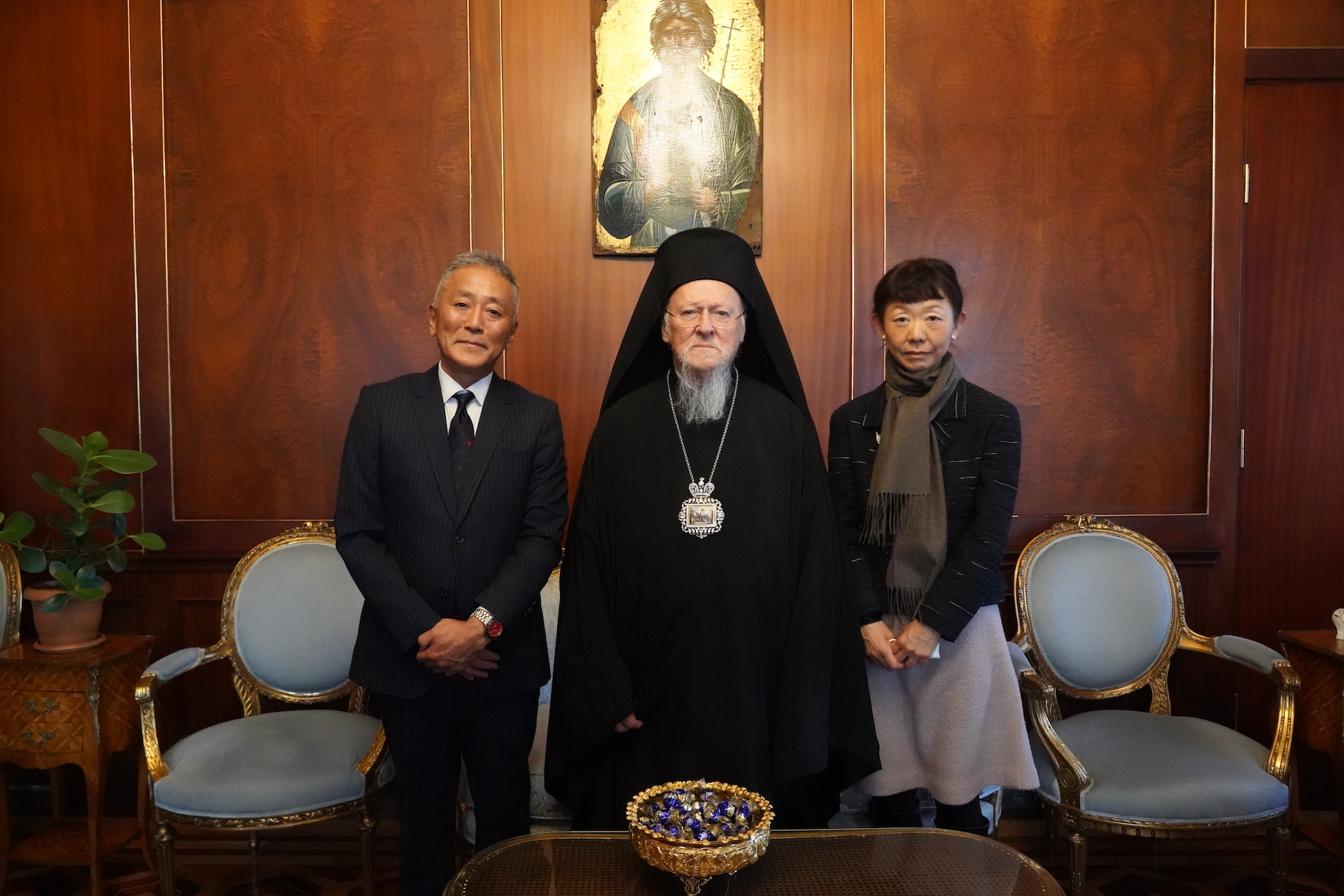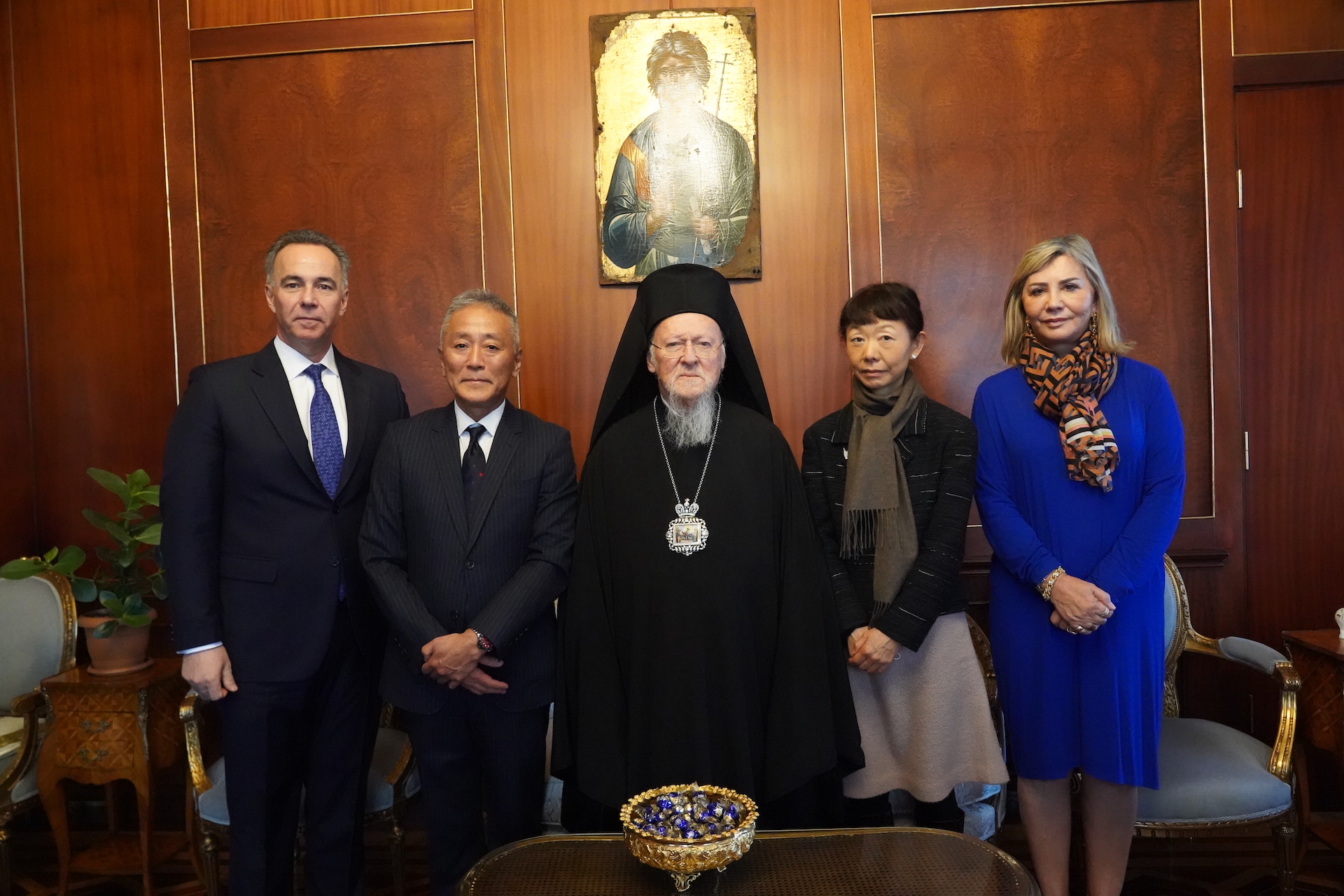Ecumenical Patriarch Bartholomew to the Youth: “Resist the instrumentalisation of the human person”
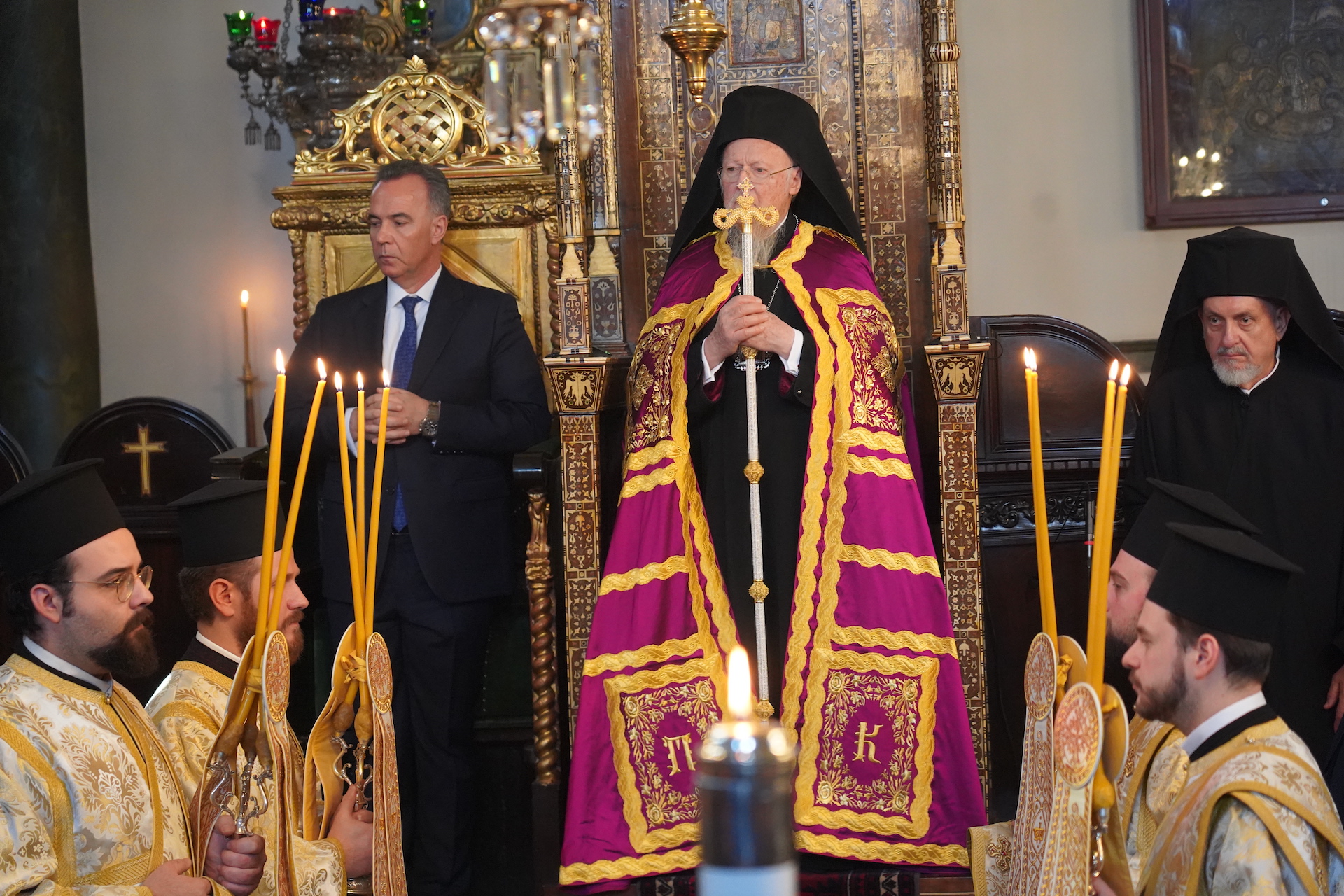

On Tuesday, 30 January 2024, the memory of the Three Hierarchs and “Protectors of Education” was commemorated with particular splendour at the Venerable Centre of the First Throne Church of Constantinople.
In his speech, the Patriarch referred to the three Fathers and Ecumenical Teachers of the Church and their contribution, pointing out that “the life and the theological, ecclesiastical and social works of the Three Hierarchs are most admirable and exceed human measure. We admire them for their total dedication to Christ and the ministry of His Holy Church, for their secular and theological education, for their steadfast struggle against heresies, for their contribution to literature and culture, for their contribution to the coupling of Hellenism and Christianity, which was decisive for the history of the spirit, for their charity and social work, for their lively interest in youth, their true progress and their advancement”.
His All-Holiness underlined that “the greatest honour for the Three Hierarchs is the highlighting of their spiritual and cultural heritage in the modern world” and referred to the importance of the feast day, emphasising that “it is an opportunity to highlight their contribution to literature, at a time when education has become a field of constant reform and endless experimentation, due to social developments and, more recently, also because of the achievements of technology that directly affect the field of education”.
In another part of his speech, he characterised the education of the new generation as an intractable problem.
“To the inherent difficulties of the pedagogical work, which derive from the “human condition”, and from the anthropological facts of the person who is “hard to direct to virtues”, today new historical and situational difficulties are added. The dizzying pace of change, the ever-deepening generation gap, the shifting of values, the impressive progress of science and the technological revolution, the “information society” and artificial intelligence, all of this puts education in the face of unprecedented problems. Radical changes are being imposed with a character of the inevitability of certain changes. Whoever therefore refuses to adapt to developments condemns himself to marginalisation, if not obscurity.
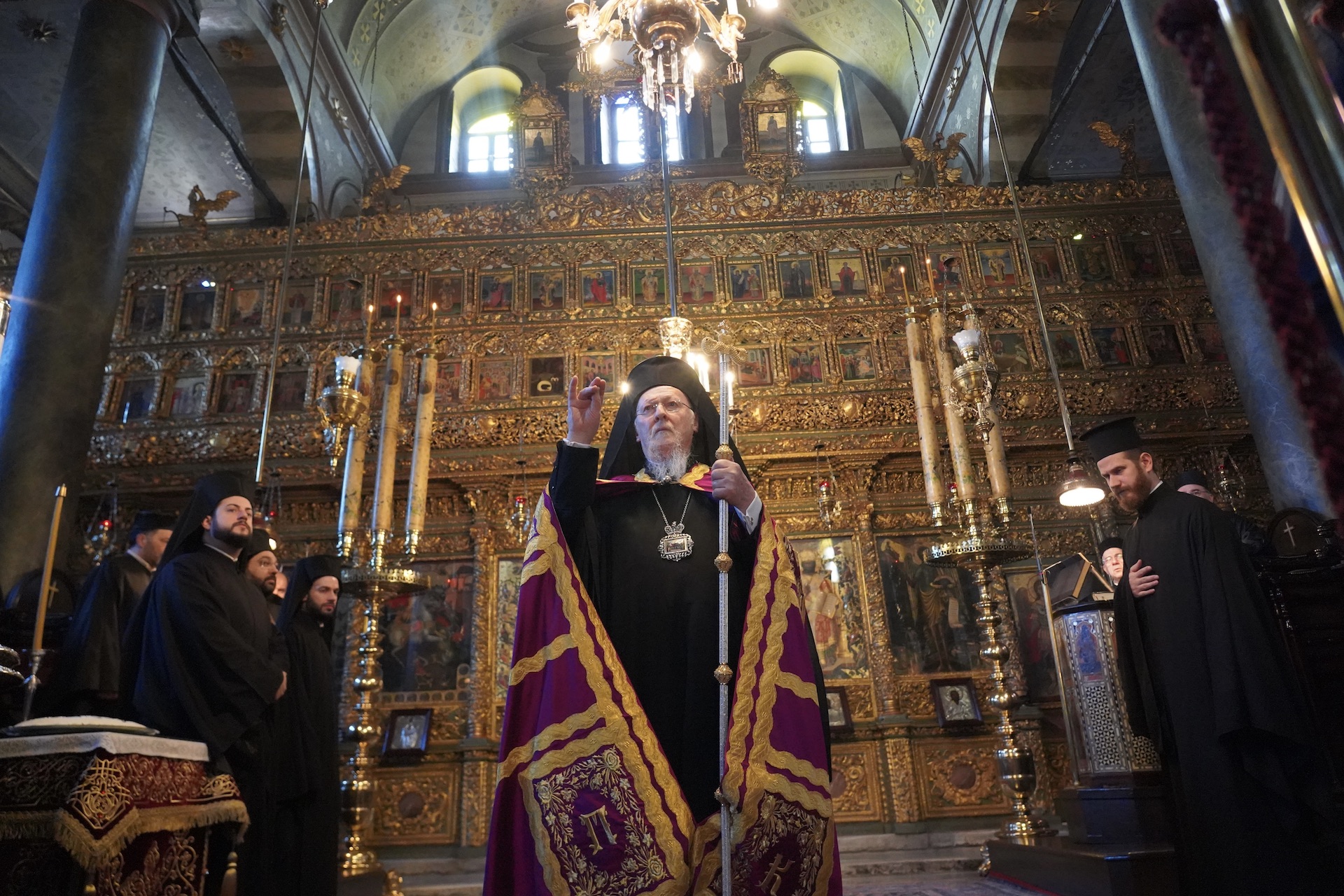

Today it is impossible to talk about the perspectives of education and not refer to the role of new technologies and the decisive intersection they represent for our present and future. Technology catalyses and affects social relations, work, our private life and everyday life, our psyche and moral sensibility, our entire culture. Traditions are weakened, symbols are eroded, progress is unilaterally identified with technological progress, while the experts of the “technopoly” acquire excessive prestige, they are “surrounded”, as Neil Postman notes, “with the gift of the priesthood”.
There is even talk of the beginning of a “new axial era” in the history of humanity and the evolution of its culture. It is written, that our experience with how technology is changing and shaping our world to a degree unimaginable until now, justifies the warning, that “for the next few years the message is clear: ‘You haven’t seen anything yet'”.
The Patriarch referred to the potential contribution of the Orthodox tradition to modern educational challenges.
“Given that the future of human education will be a future of continuous struggle for its identity, our Orthodox tradition is called upon to contribute, as it has done in the past until today. Certainly, in the spiritual treasury of Orthodoxy there are no ready answers and solutions to the modern problems of education. But there are the basic principles, the fundamental values and the theological criteria, on the basis of which solutions to modern pedagogical challenges may be built. We have here an inexhaustible source from which to draw inspiration and direction for our endeavours.
Clearly, faithfulness to Tradition does not mean a “museum fossilisation” of all things. The great Fathers of the Church were chosen according to their time and managed to influence and shape the culture.
Aptly, the blessed Metropolitan John of Pergamon notes the following about modern Orthodoxy: “What late Greek philosophy was to the world of the Fathers of the Church, that is, a world with which they had to choose and transform it, is for today’s Orthodoxy the galloping technical civilisation of our time.
Today’s world is dominated by the achievements of Western civilisation, which range from the conquests of technology to the anxieties of loneliness and depersonalisation of people, which modern art in all its forms so tragically expresses.” (“Orthodoxy today”, in his work, Kosmou Lytron, Megara 2014, p. 239). Orthodoxy must address this world “with brave contemplation and sensitivity” and to give her good witness towards the sanctity of the human person and their freedom, drawing from her doctrinal and liturgical heritage and from her eucharistic and ascetic ethos”.
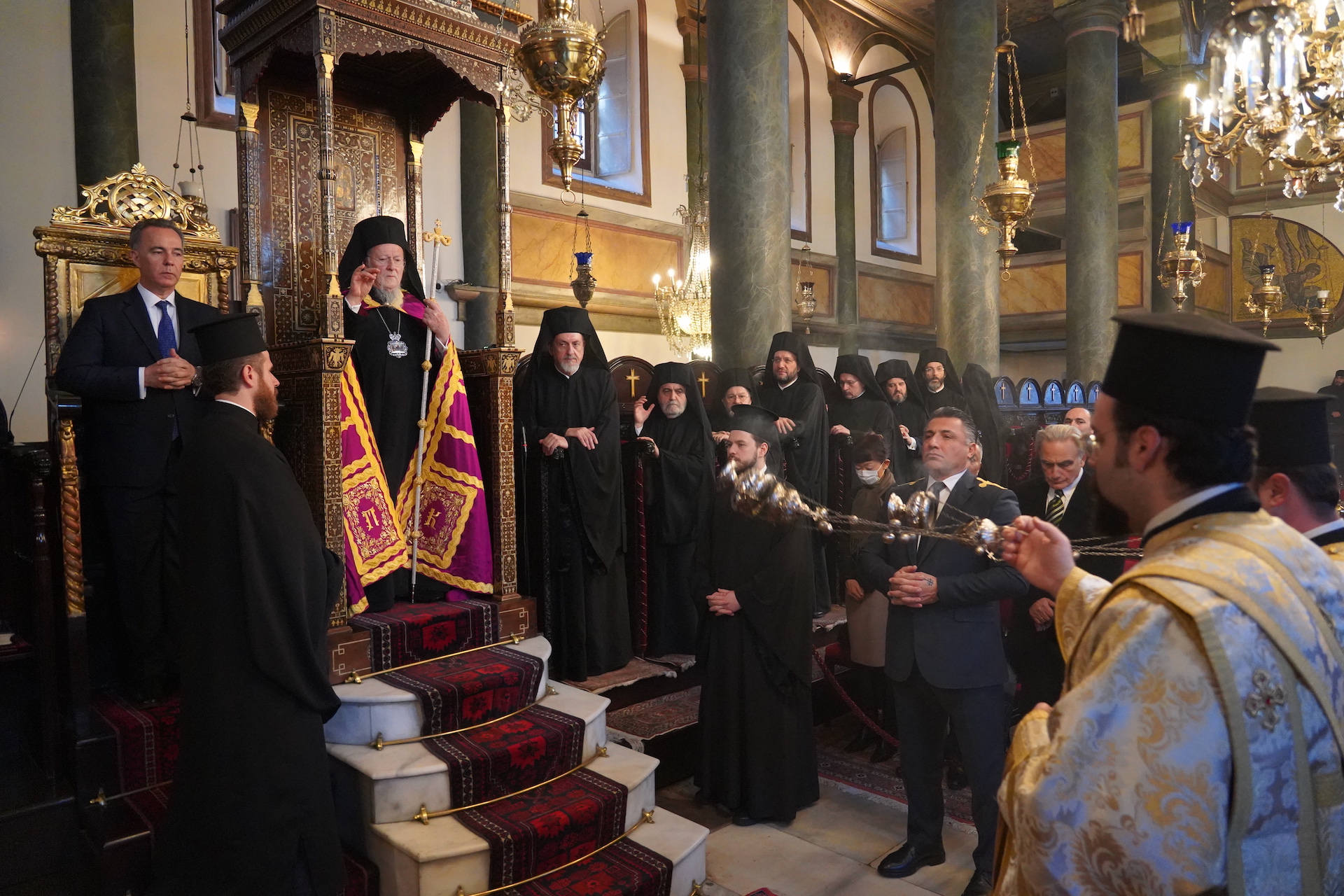

Addressing the students who were present from the Athonias Ecclesiastical Academy and from the local Greek Community schools, but also to all young people, the Ecumenical Patriarch said:
“In the face of the dominance of economism and machines, your Patriarch encourages you: Resist the objectified life and the instrumentalisation of the human person. The orientation towards ourselves and the satisfaction of individual needs means shrinking our existence. Then the human being, like King Midas, turns everything they touch into a lifeless and frozen object. May you share life, may you have love, without which, as the Apostle Paul says, man destroys himself. If I do not have love, “I am nothing”, says the Apostle of the Gentiles (1 Cor. 13:2). And St. John Chrysostom adds, stigmatizing the “non-culture” of possessing: “For where there is “mine” and “yours”, there lies every idea of conflict and rivalry” (PG 53, 309). Only by following the commandments of God can man develop his creative powers in his worldly life. Never and nowhere can there be true progress without respect for spiritual values.
These truths embody and express the spirit of the Three Hierarchs, to whom we are grateful for all the truths and virtues they have taught us. We Glorify the Lover of human kind and Giver of all good, who gave to the Church and the Nation these three “exemplars of piety”, the “tablets of the spirit”, “the healers of the Trinity”, the heralds of God, that He is ‘one’, but is not alone”, the “denial of loneliness”, the “God of love”, who calls every person into the communion with His holiness”.
Previous to this, speeches were given by the Deputy Minister of Education and Religious Affairs of Greece, Ms. Zetta Makri, and Mr. Panteleimon Panagiotidis, President of the Ephorate of the Patriarchal Great School of the Nation.
Earlier, the Ecumenical Patriarch officiated at the Divine Liturgy from the throne which was held at the Venerable Patriarchal Church of Saint George, and was joined on the throne by Their Eminences, Elder Metropolitan Emmanuel of Chalcedon, Elder Metropolitan Apostolos of Derkoi, Metropolitan Irinaios of Myriophytos and Peristasis, Metropolitan Stephanos of Kallioupolis and Madytos, Metropolitan Athenagoras of Kydonia, Metropolitan Maximos of Selyvria, Metropolitan Andreas of Forty Churches and Metropolitan Ioakeim of Bursa.
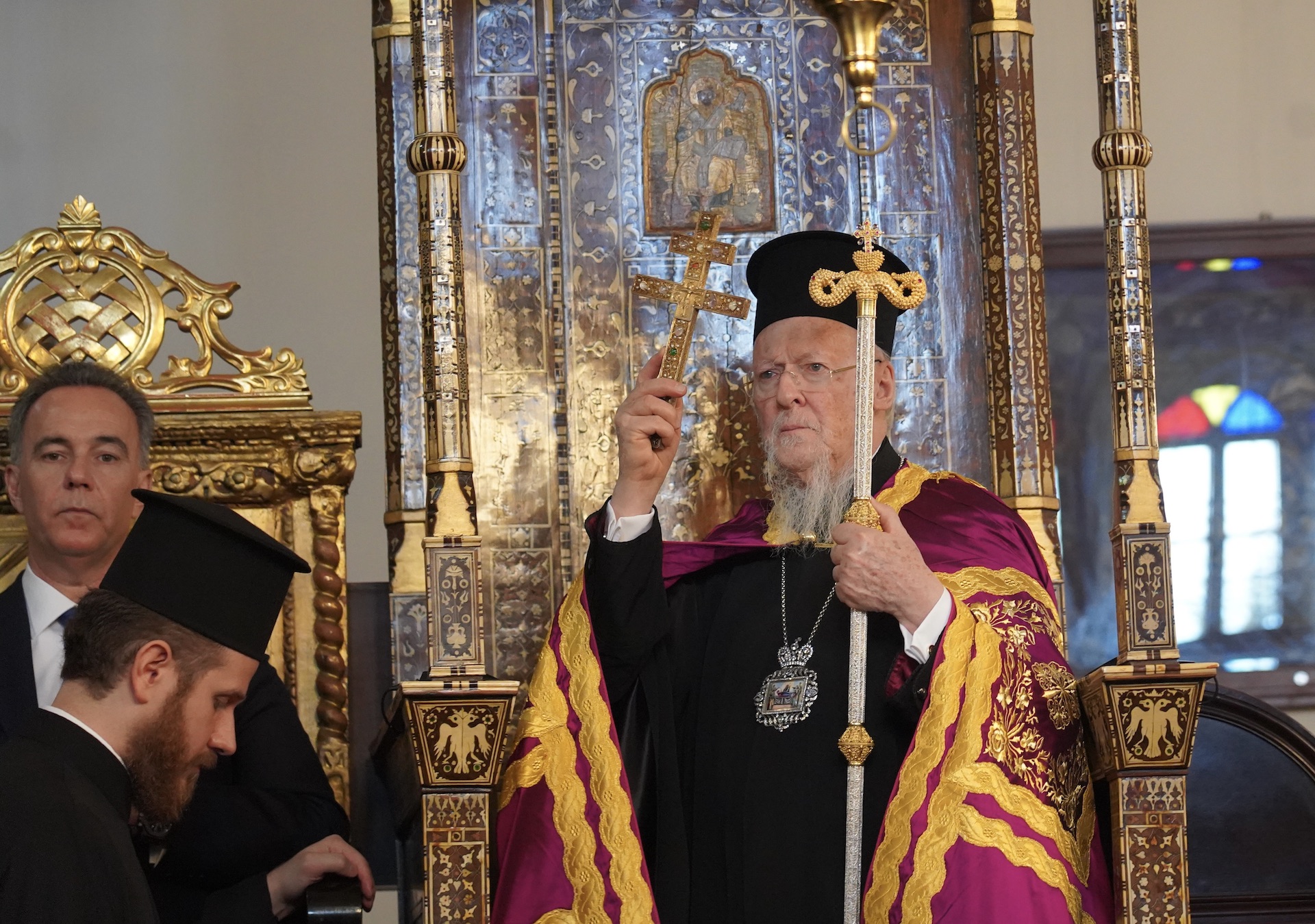

The panegyric homily of the day was delivered by His Eminence Metropolitan Theodoros of Seleucia, Professor of the Higher Patriarchal Ecclesiastical Academy of Crete.
Also present for the Feast Day were, Their Graces, Bishop Adrianos of Halicarnassus, Bishop Kassianos of Aravissos, Bishop Smaragdos of Daphnusia, Bishop Paisios of Xanthoupolis, Athonite Fathers, Lord Archons of the Great Church of Christ, the Ambassador His Excellency Mr. Konstantinos Koutras, Consul General of Greece in Constantinople, Mr. Yasunori Nakayama, Ambassador of Japan to Greece, the Ephorate, the High School Principal, Teachers and students of the Patriarchal Great School of the Nation, Teachers and students of other Greek Community Schools, Teachers and Senior students of the Athonias Ecclesiastical Academy, as well as believers from Constantinople and abroad.
After the conclusion of the Divine Liturgy, the Ecumenical Patriarch performed, as every year, a Memorial Service for the repose of the souls of the ever-remembered Founders, Benefactors, Trustees, Headmasters, Professors, Teachers, Curators and students of the Great School of the Nation.
